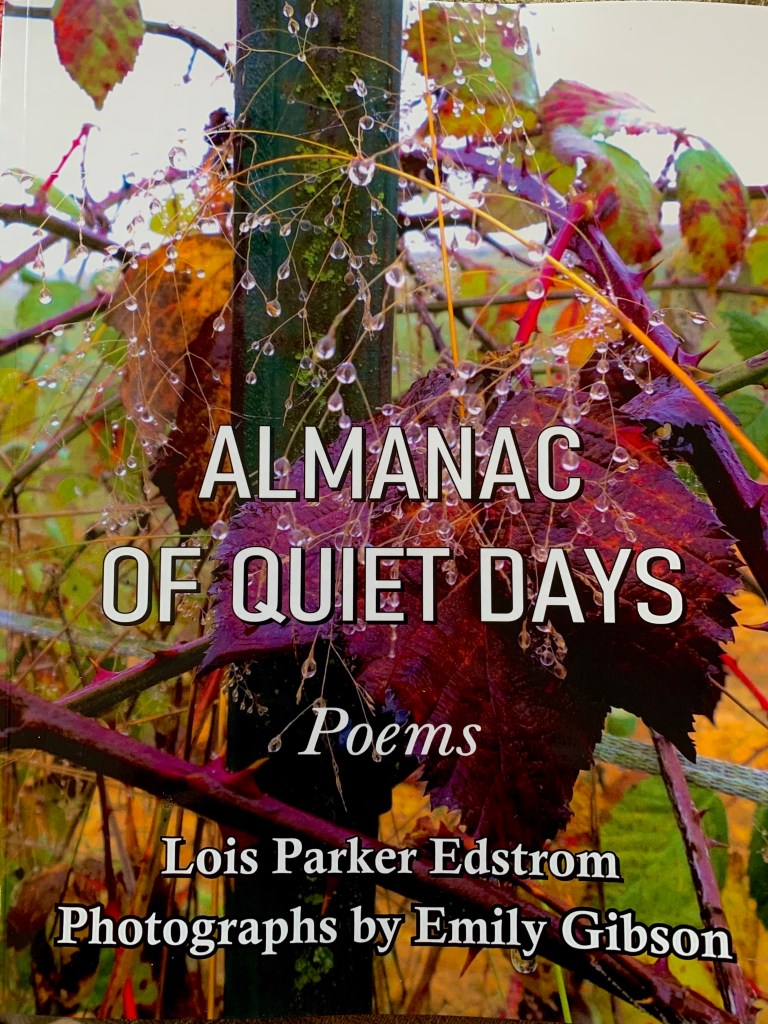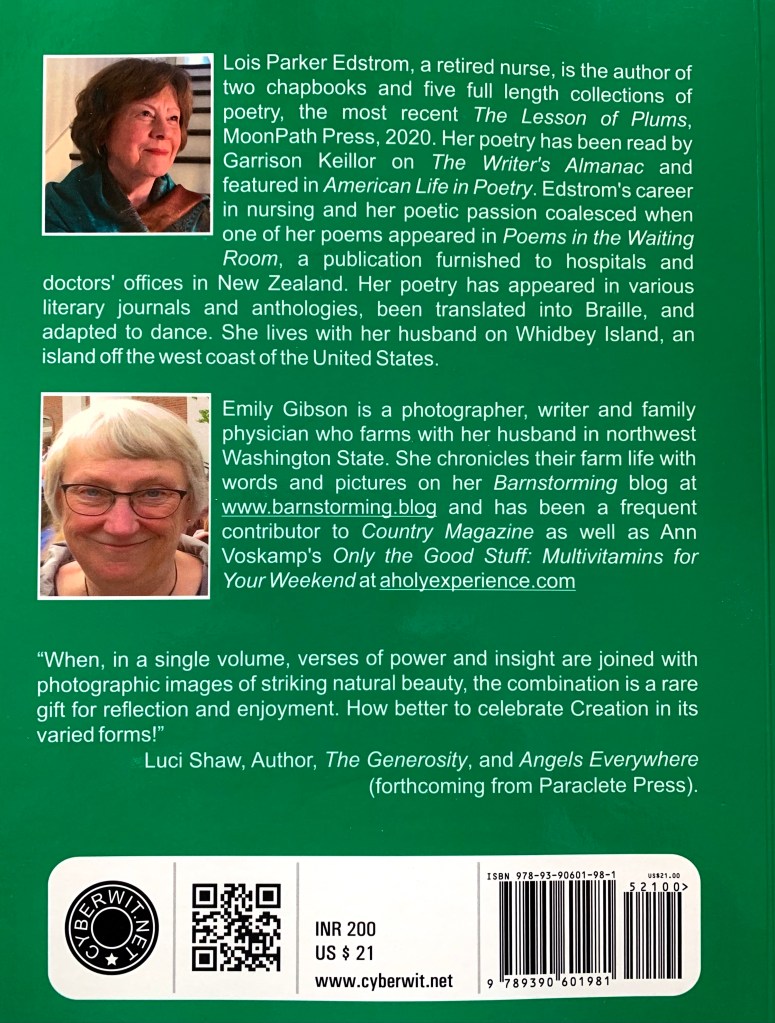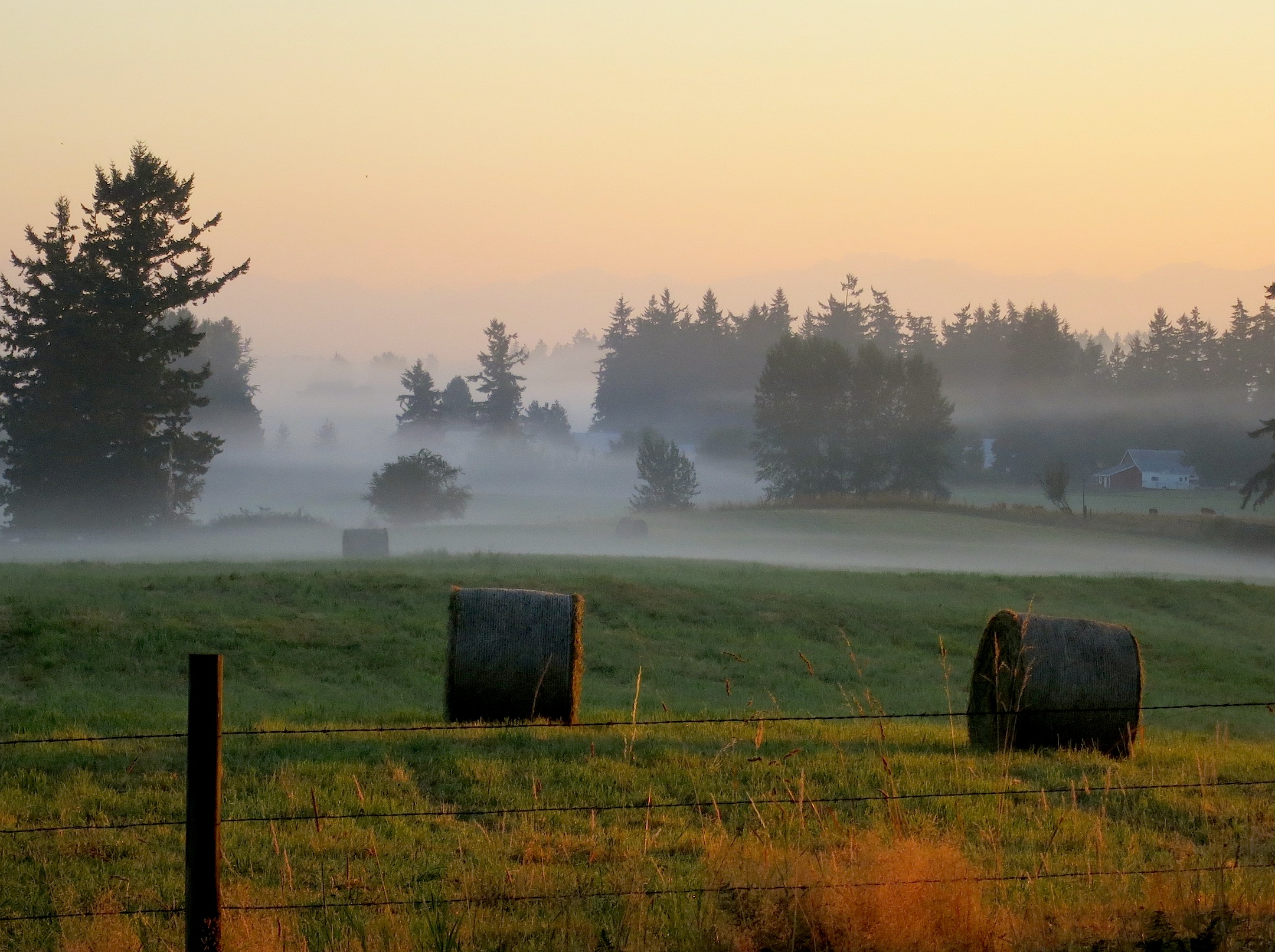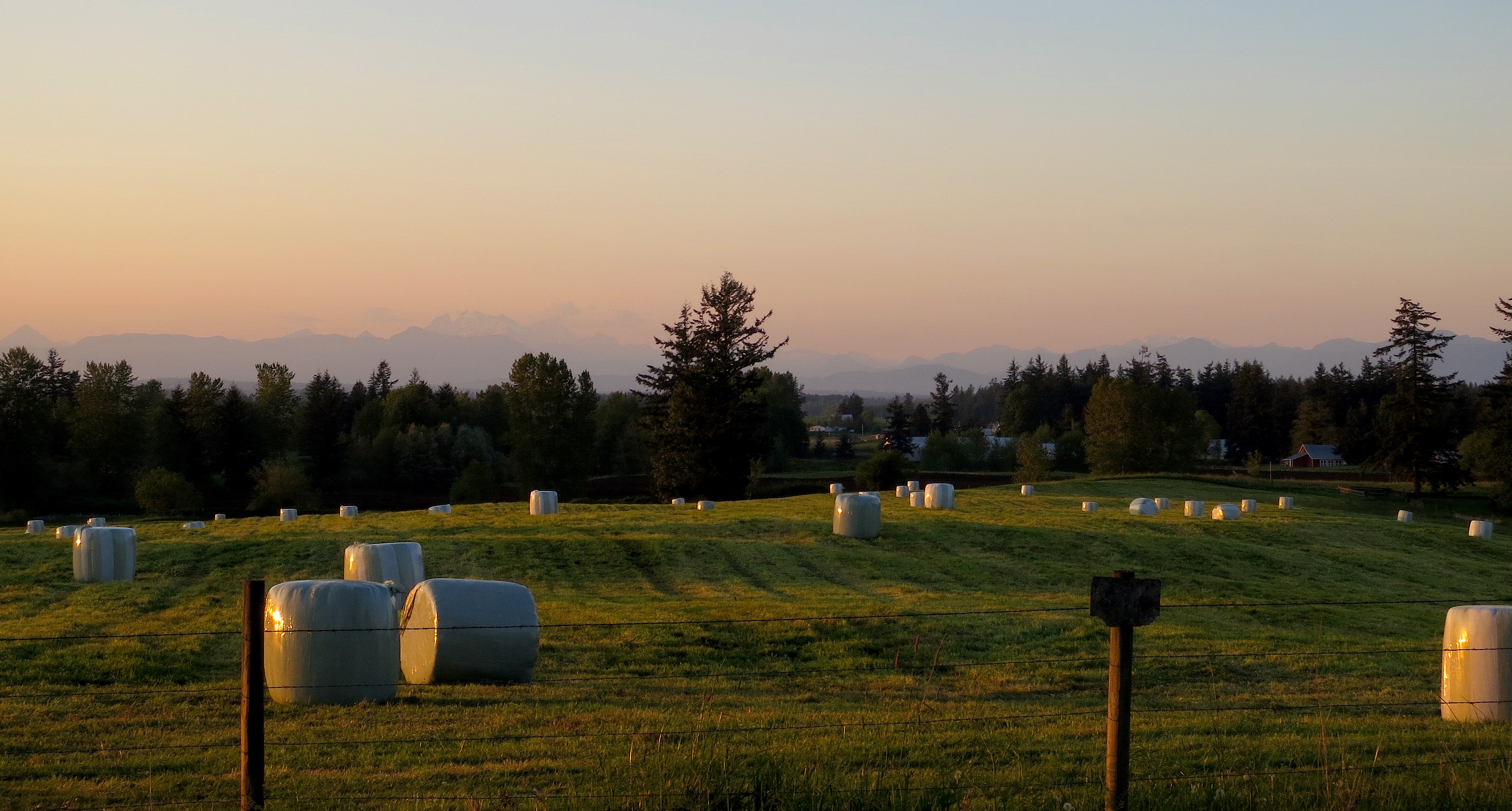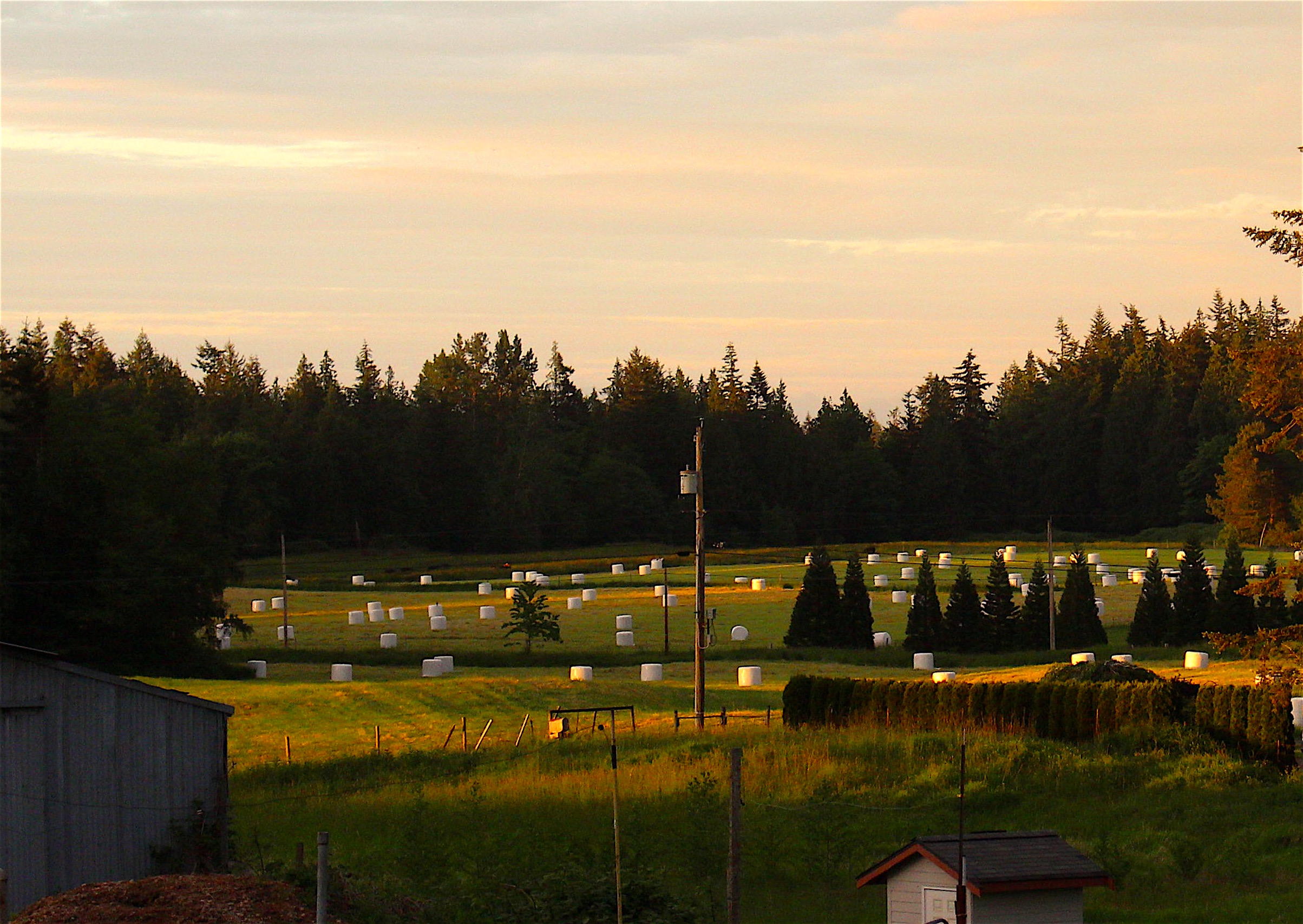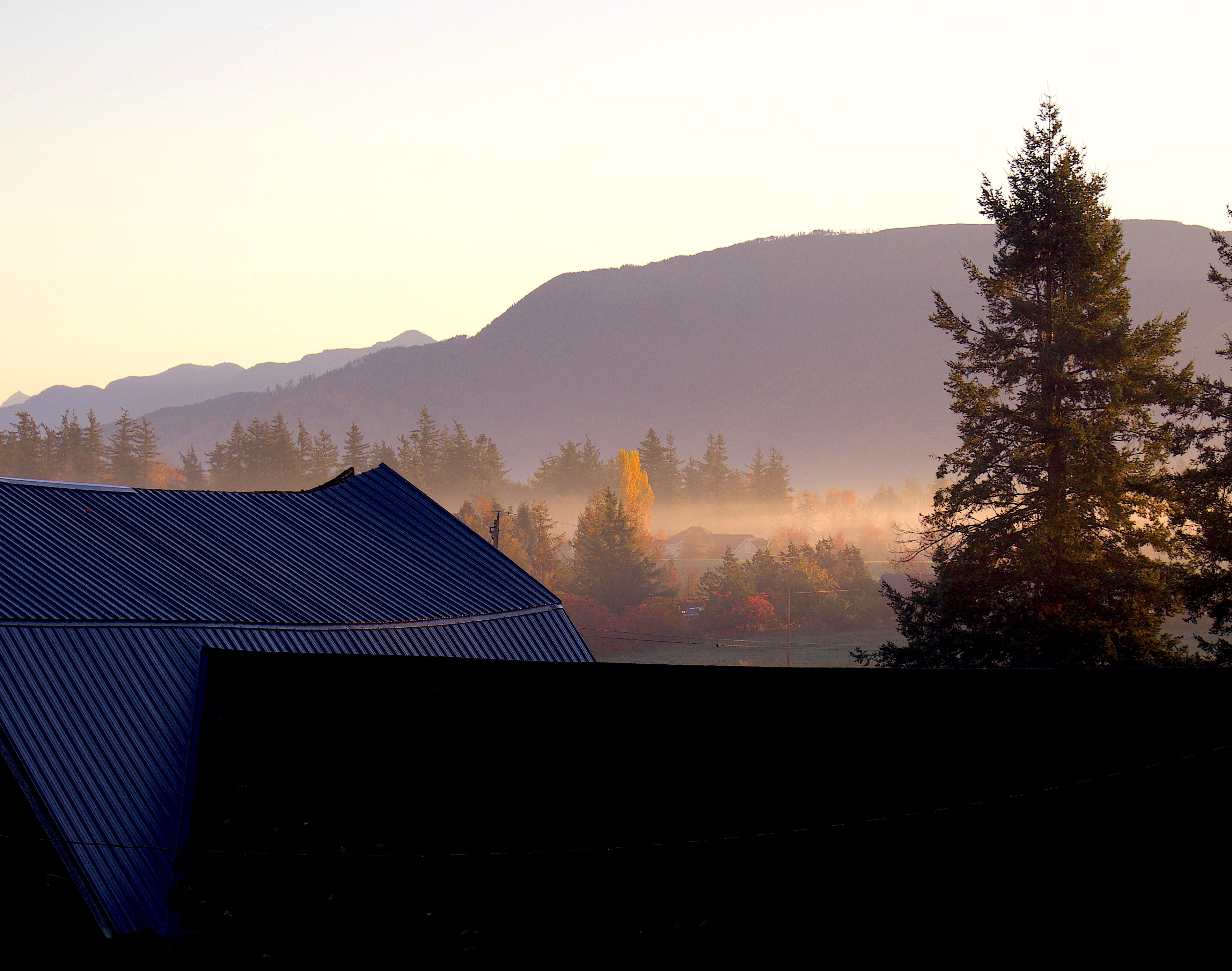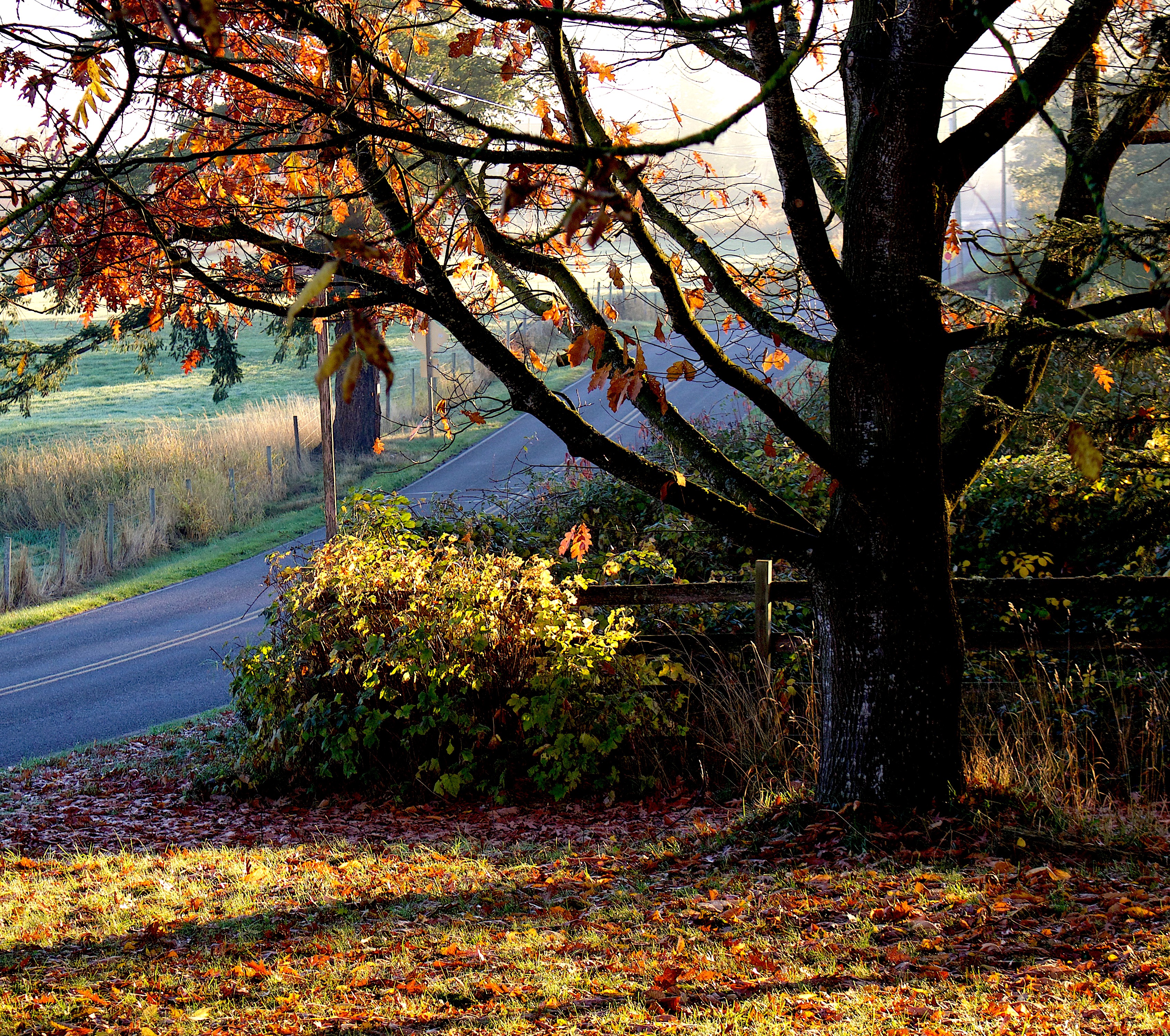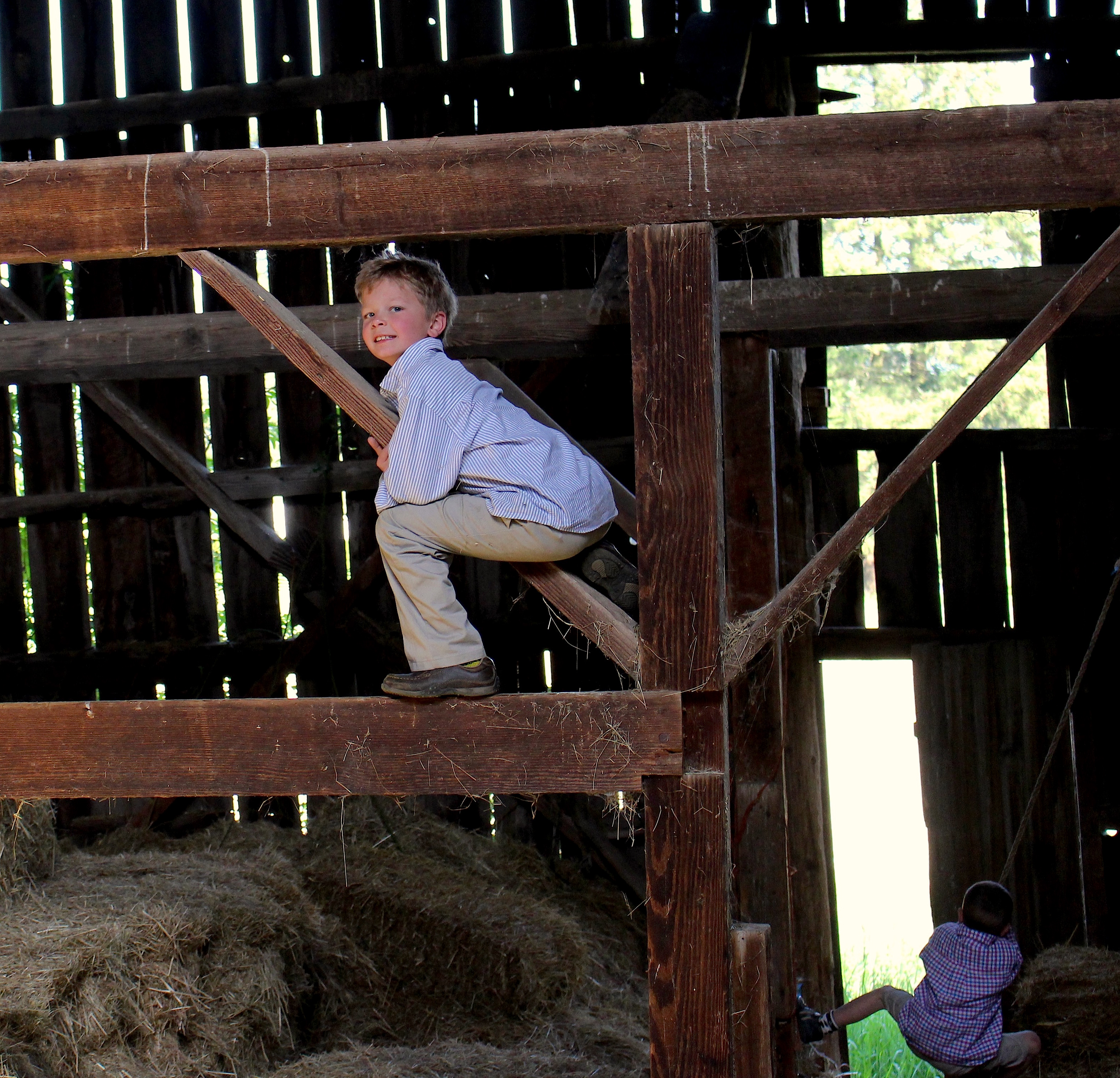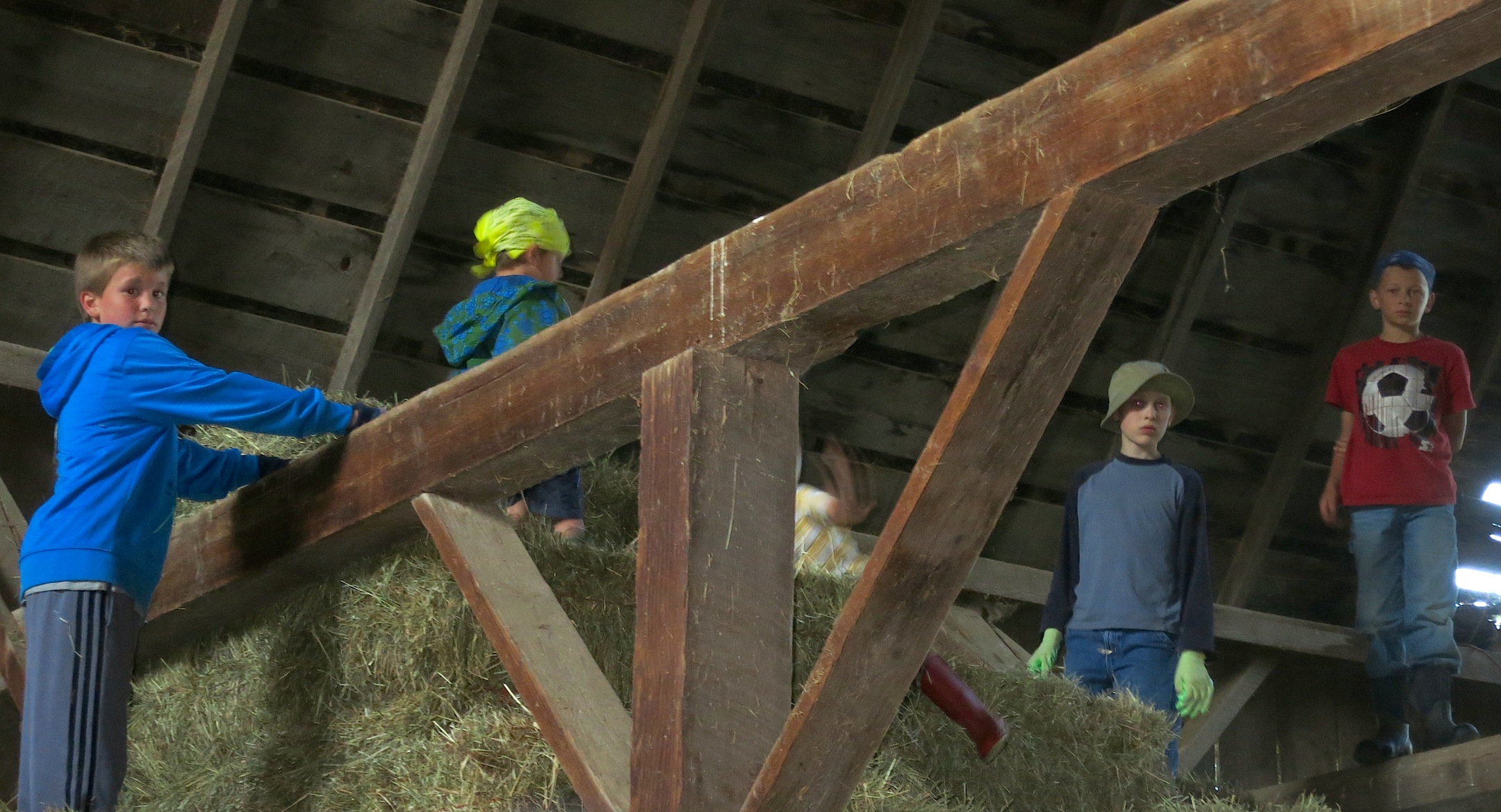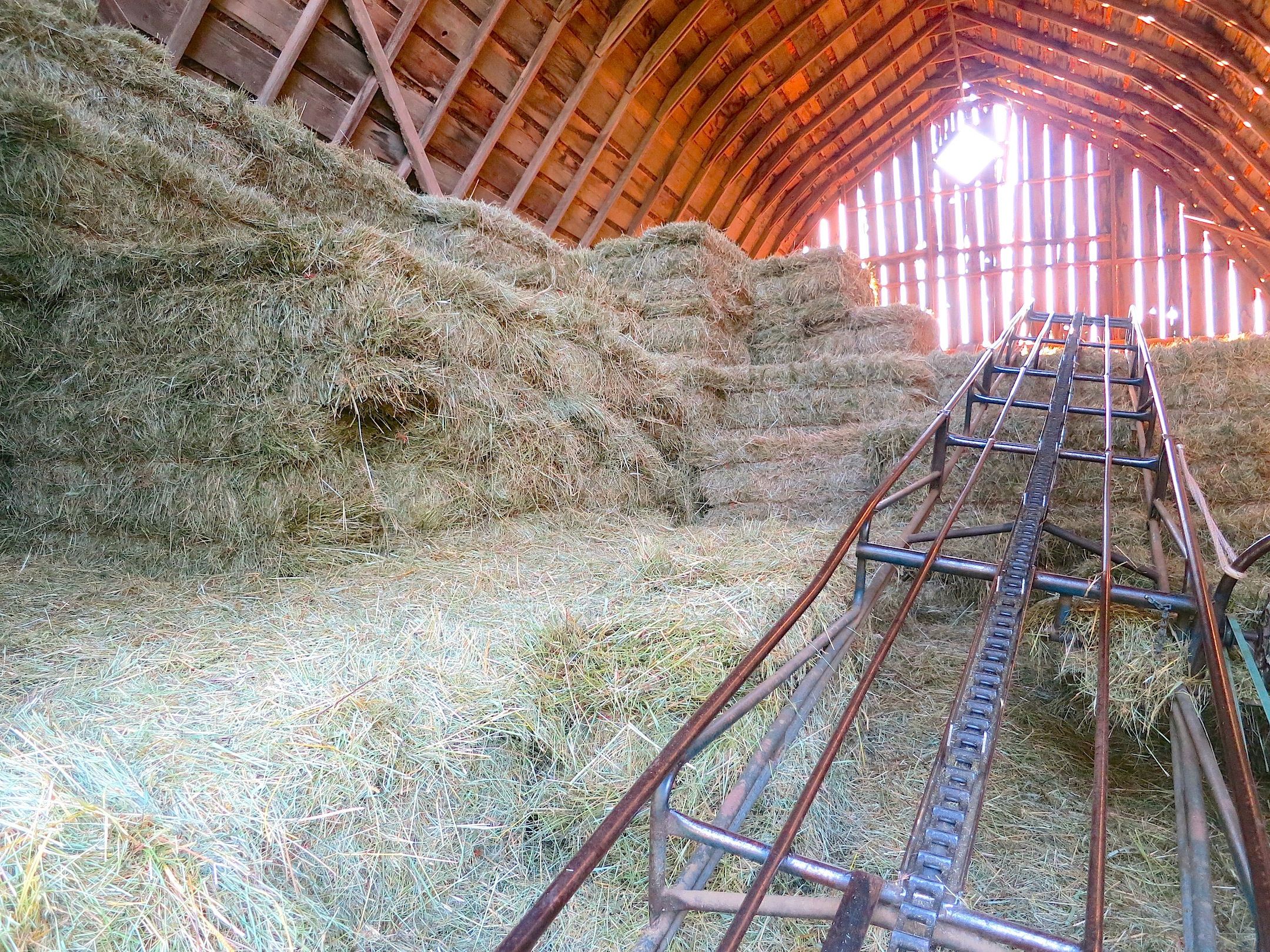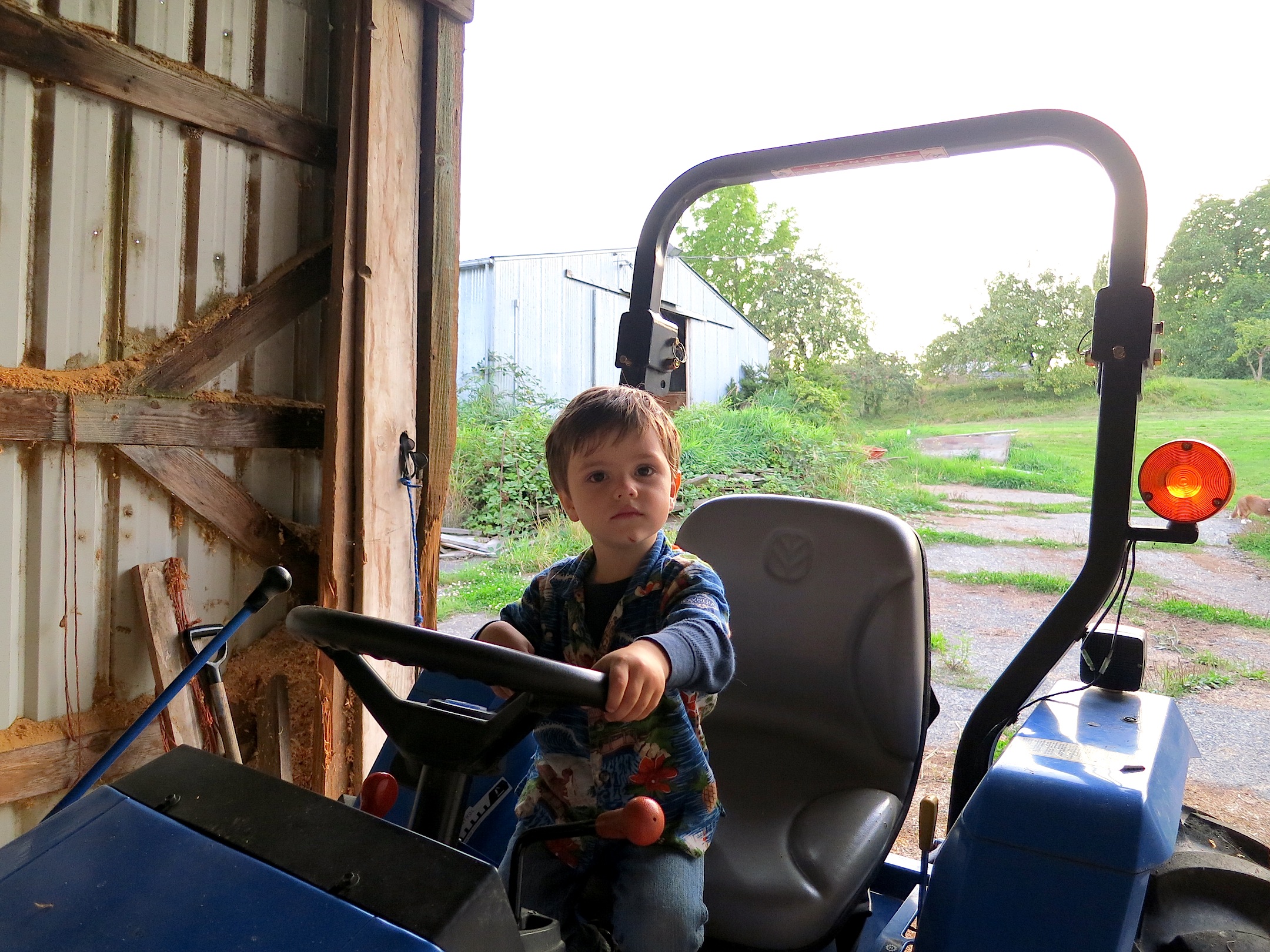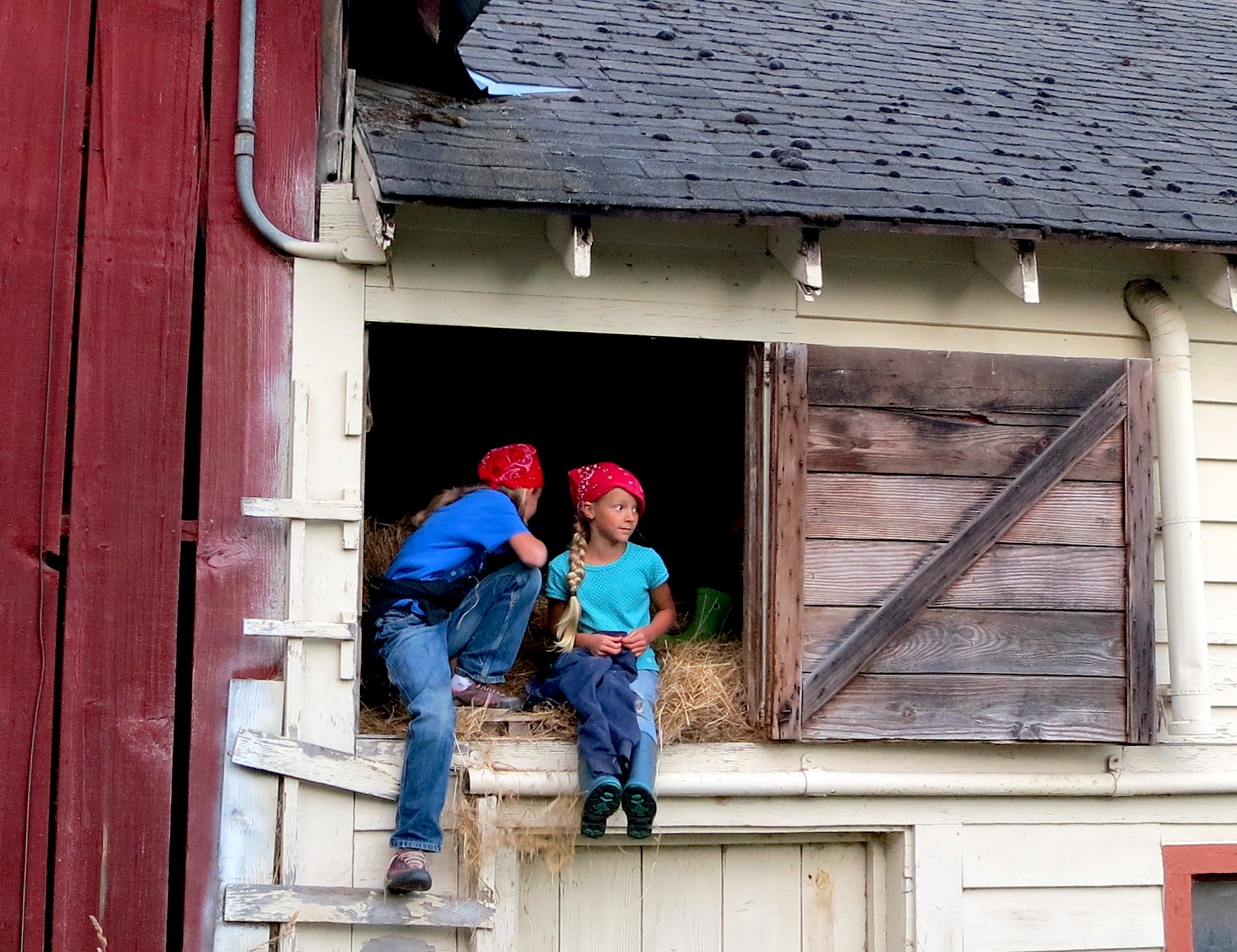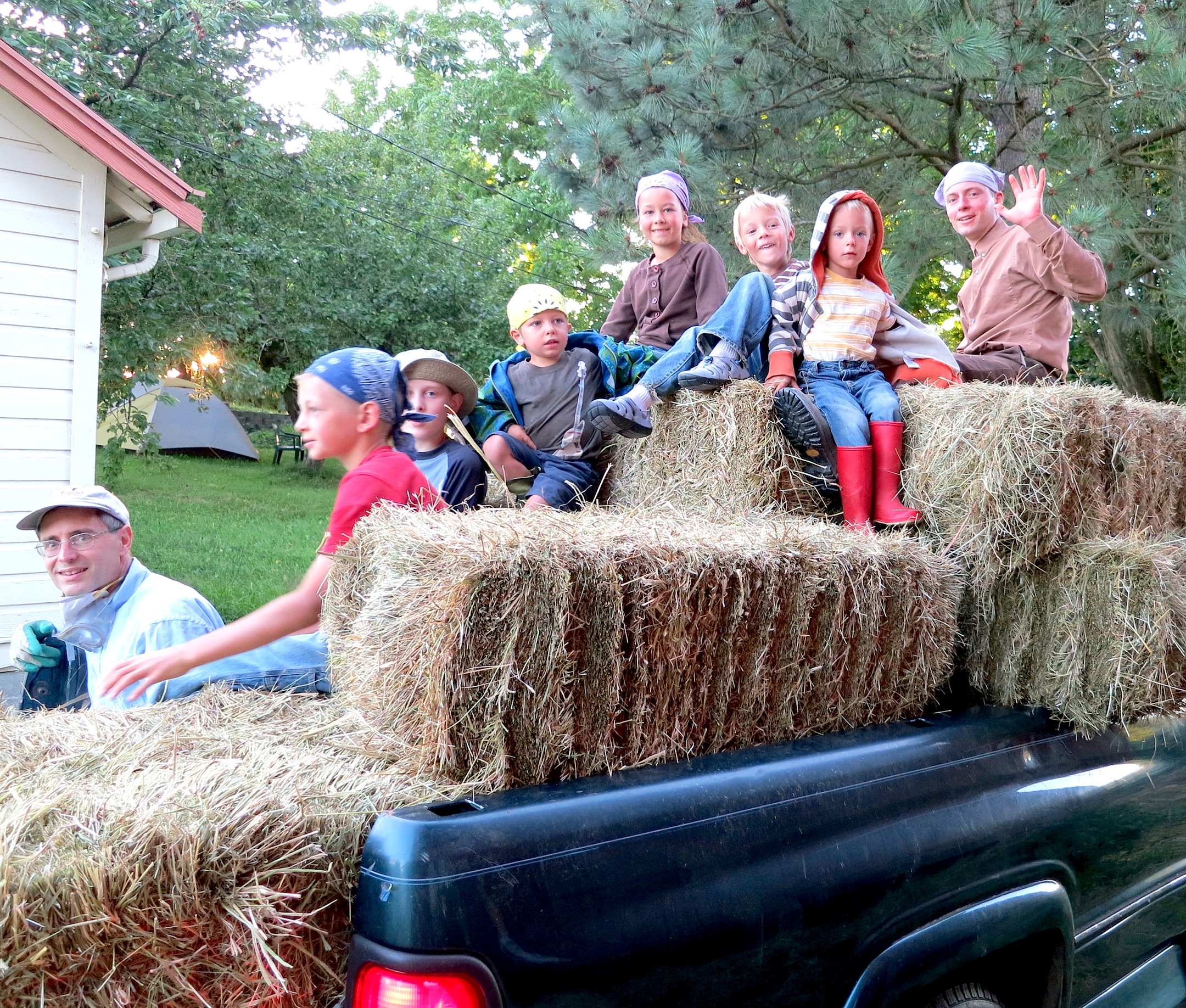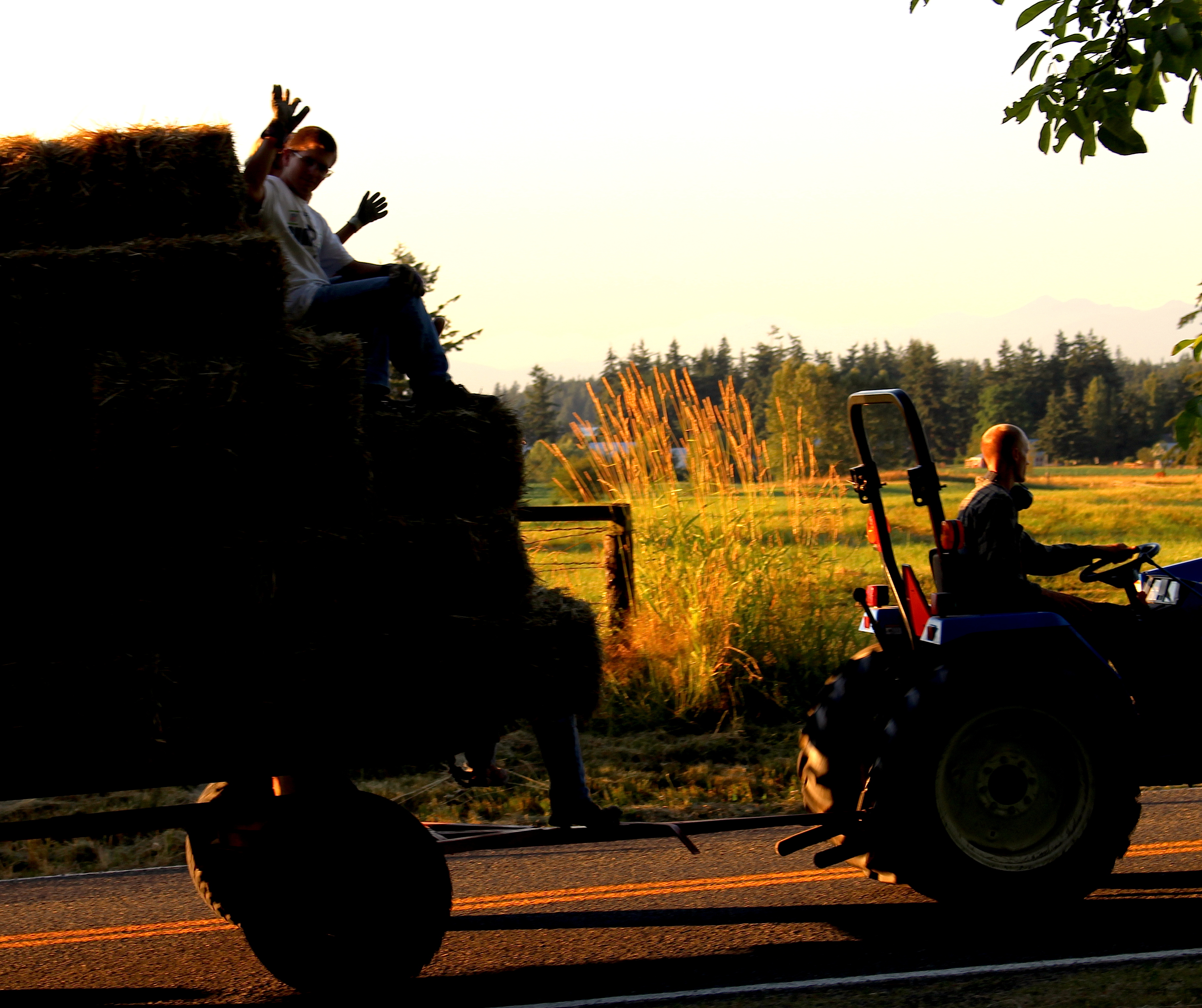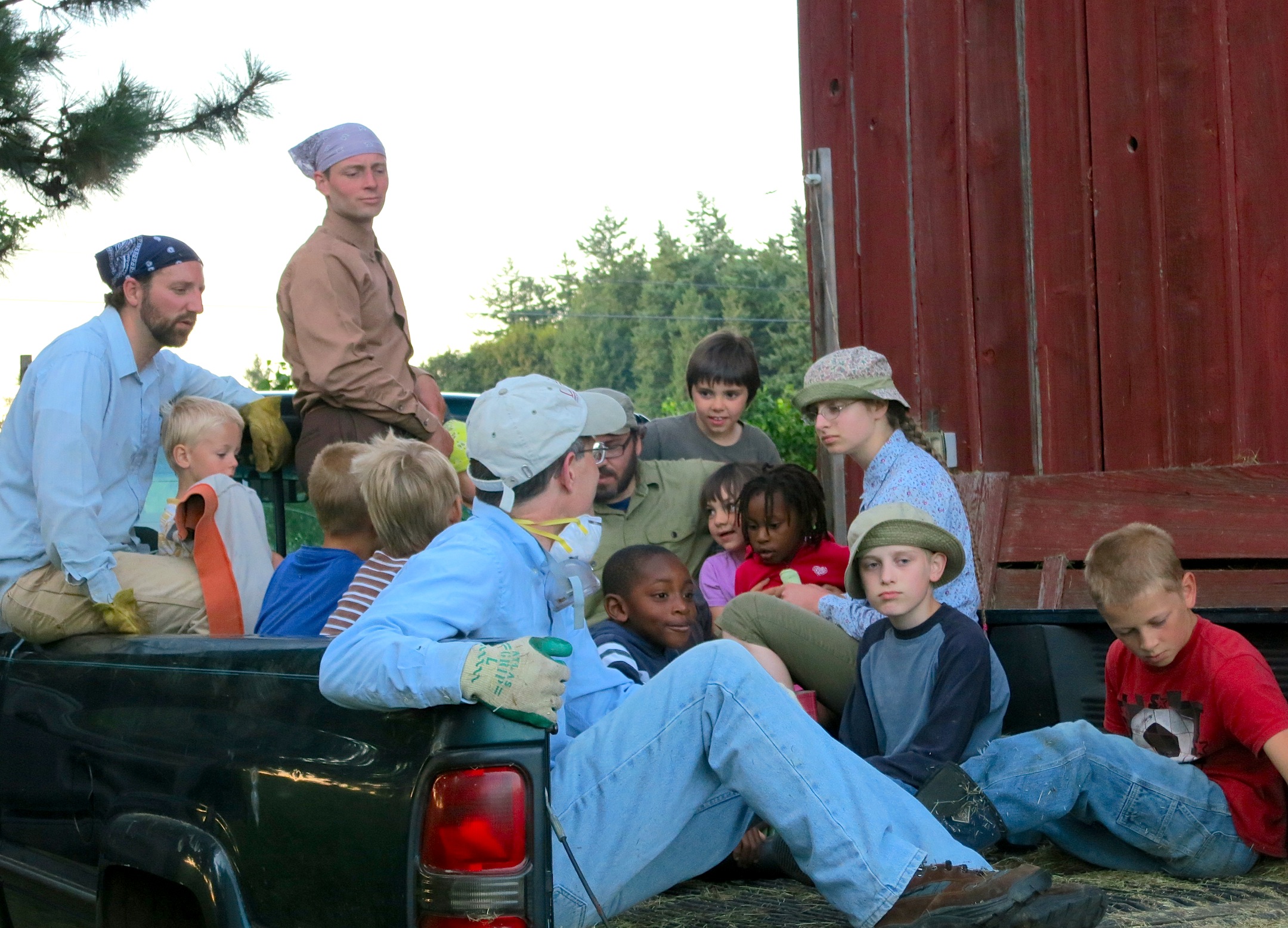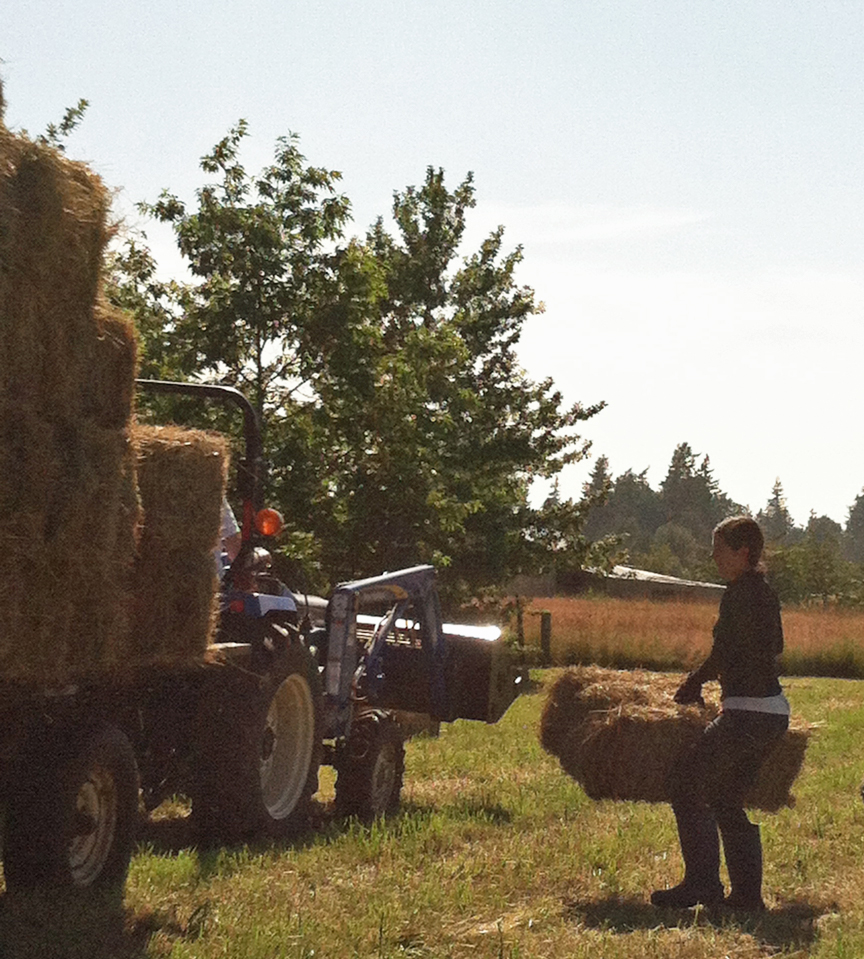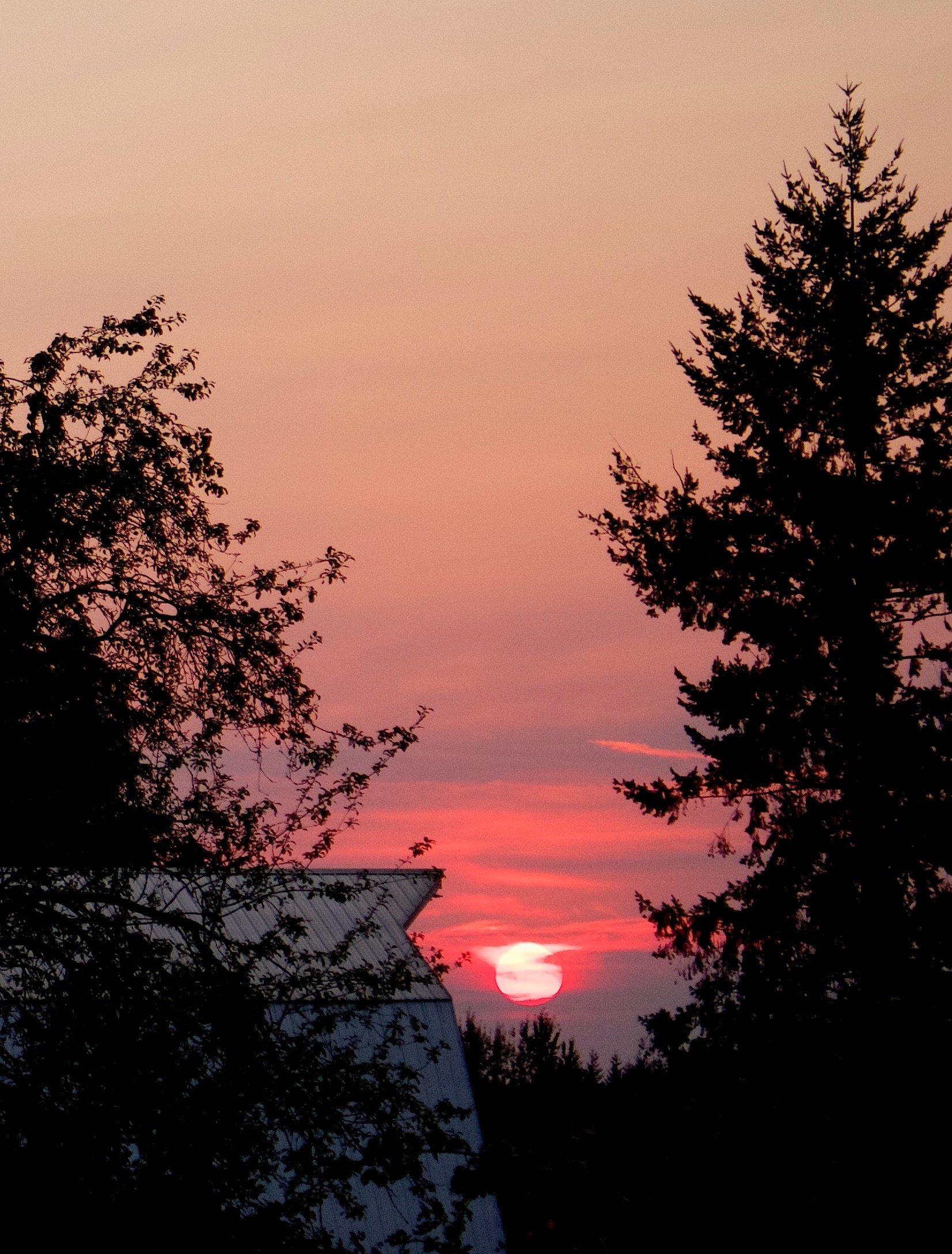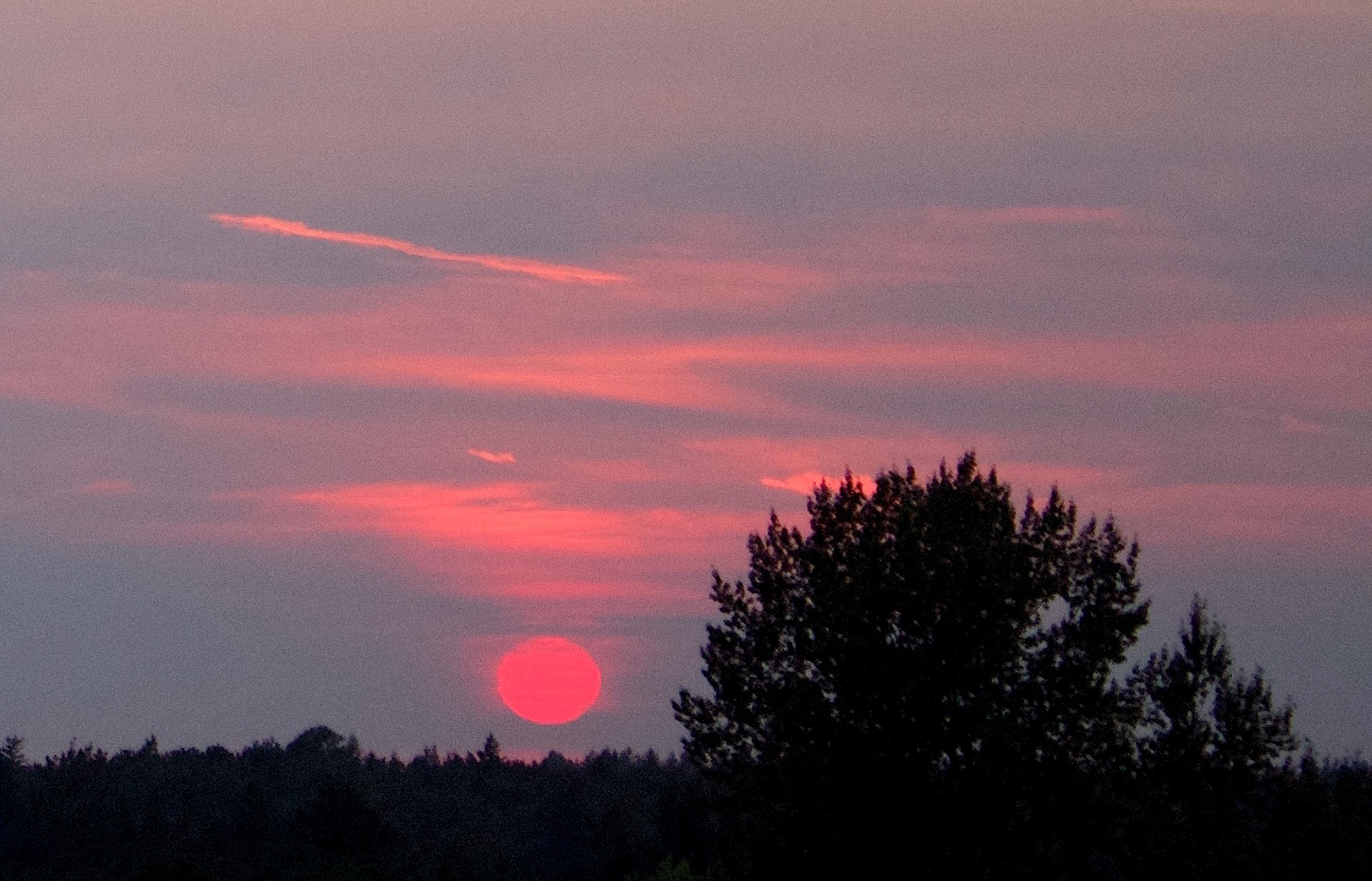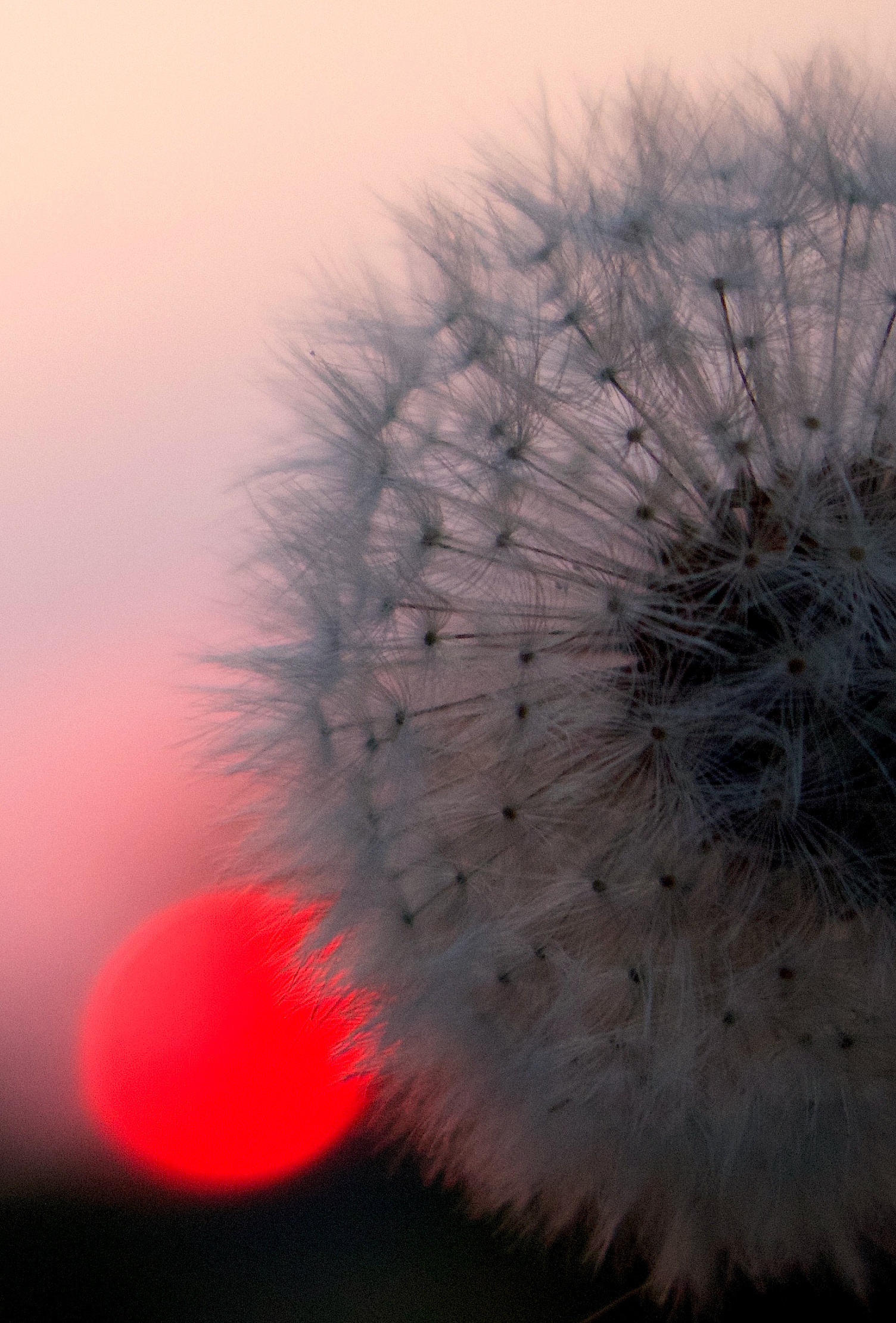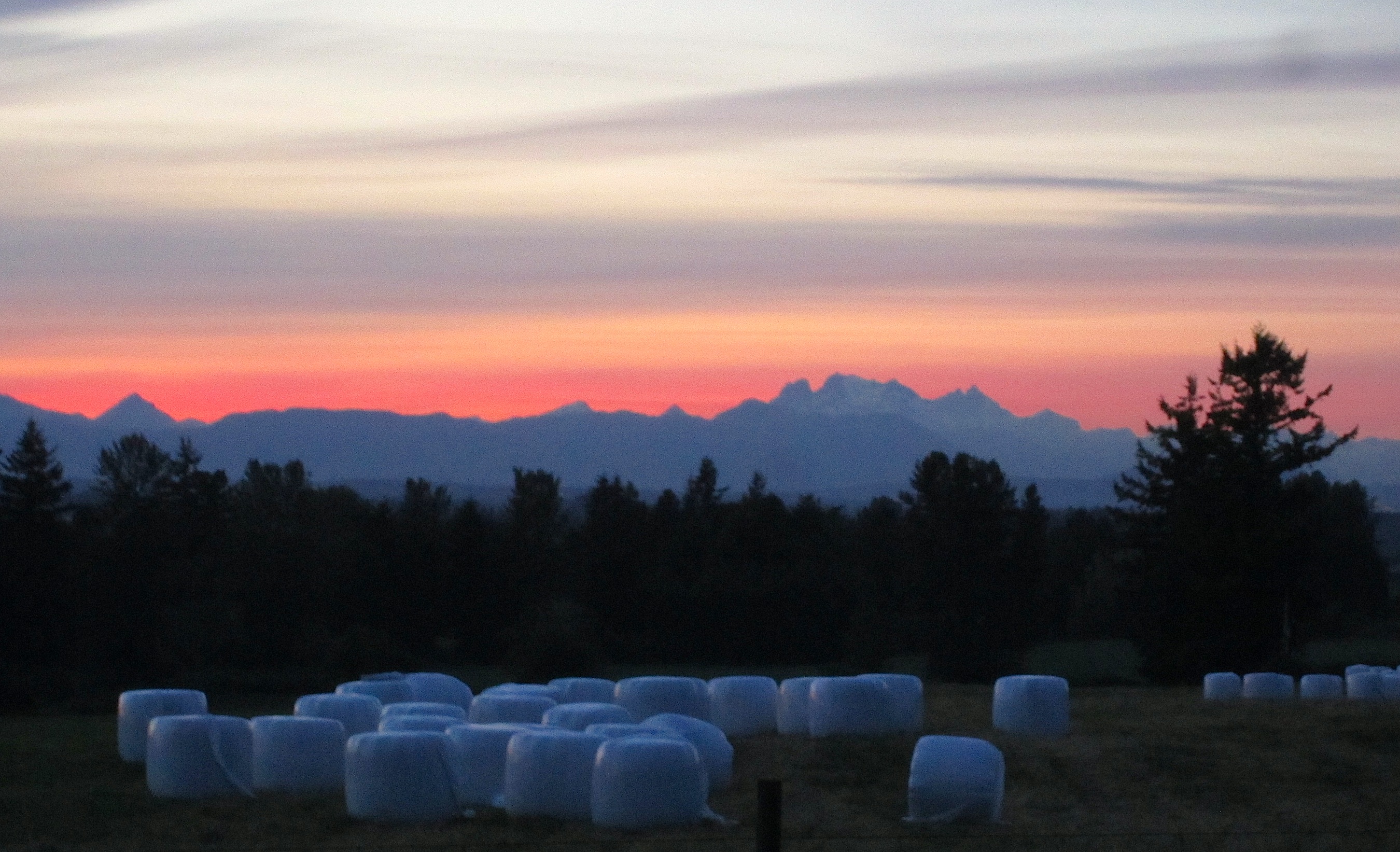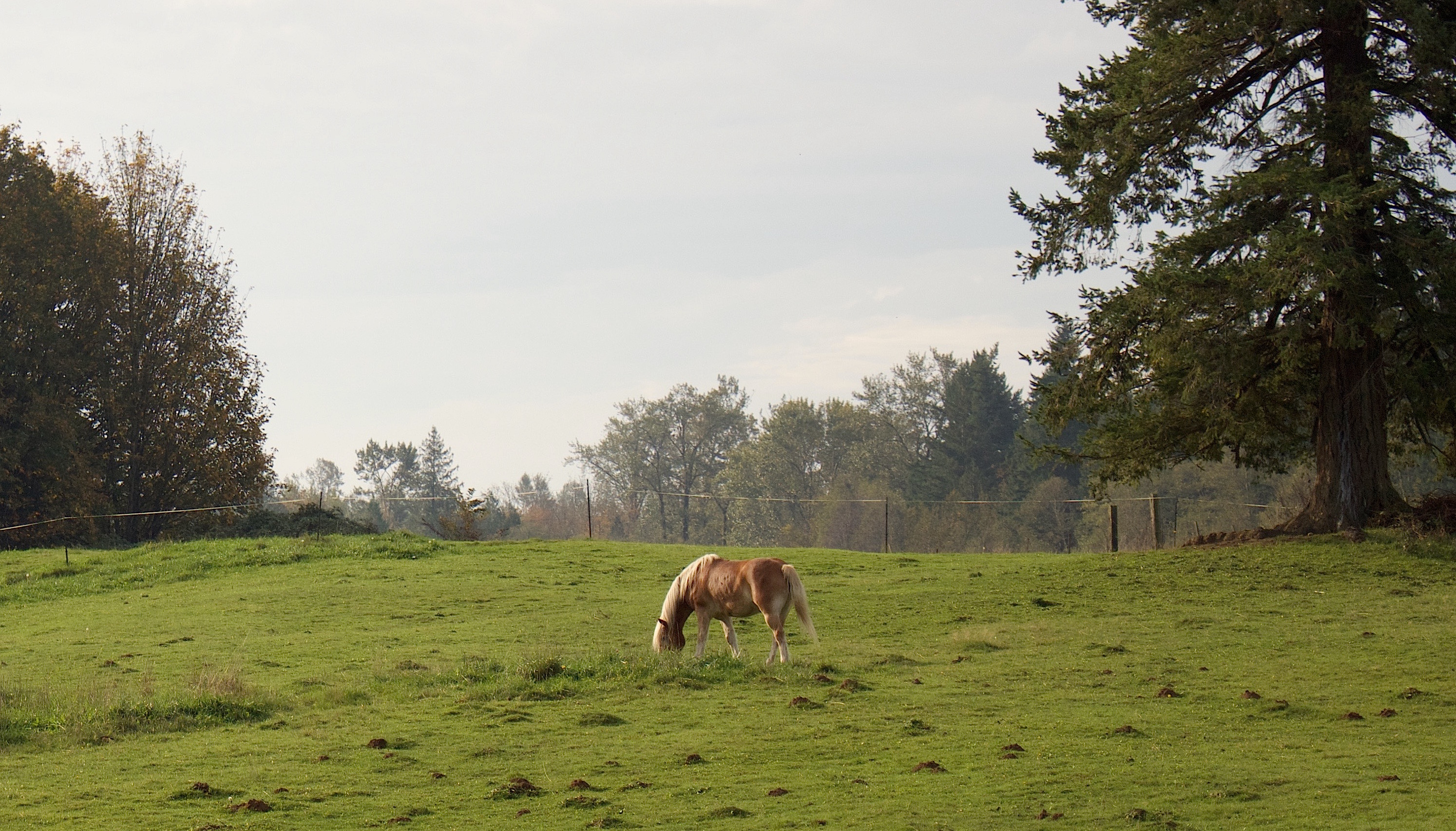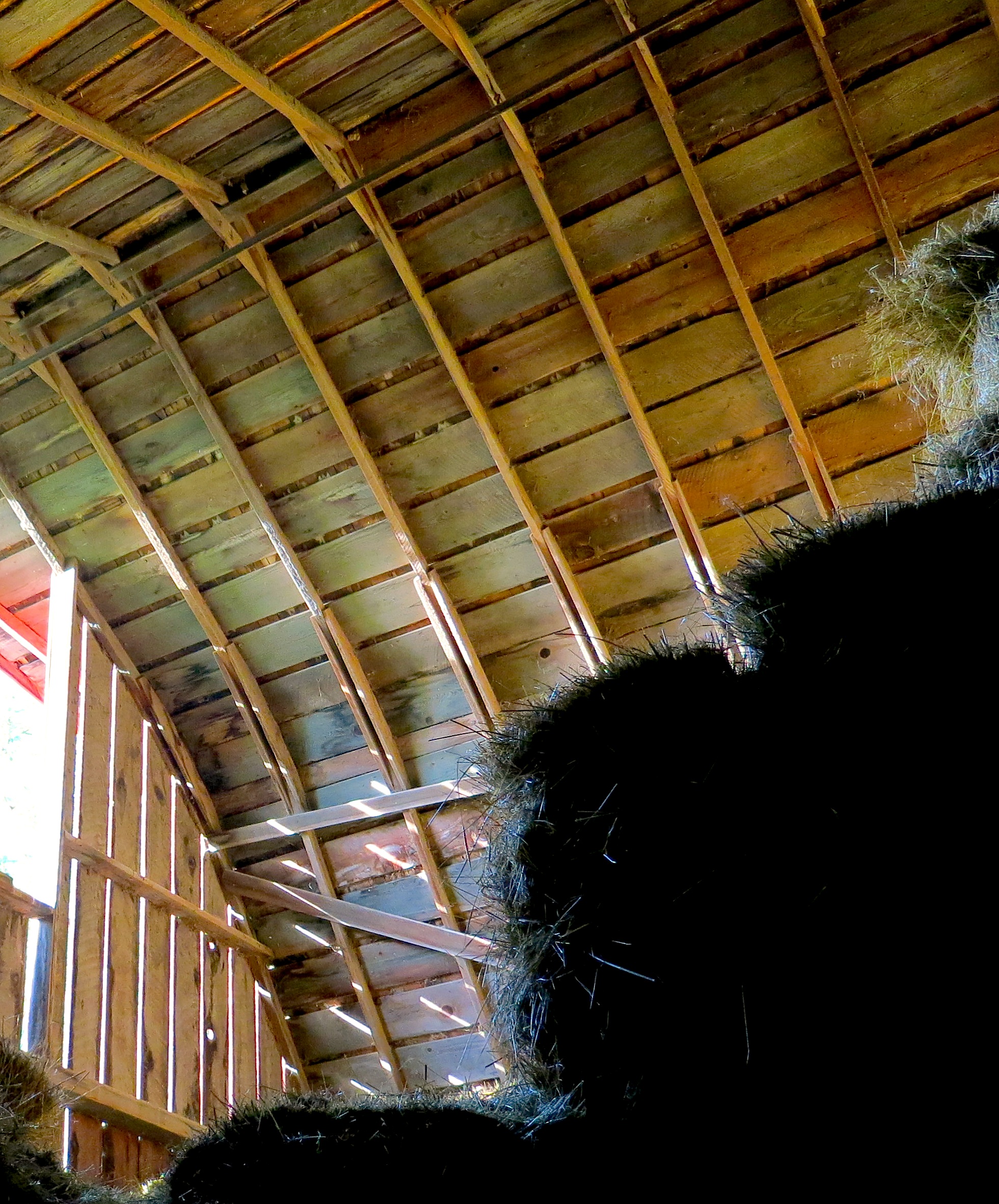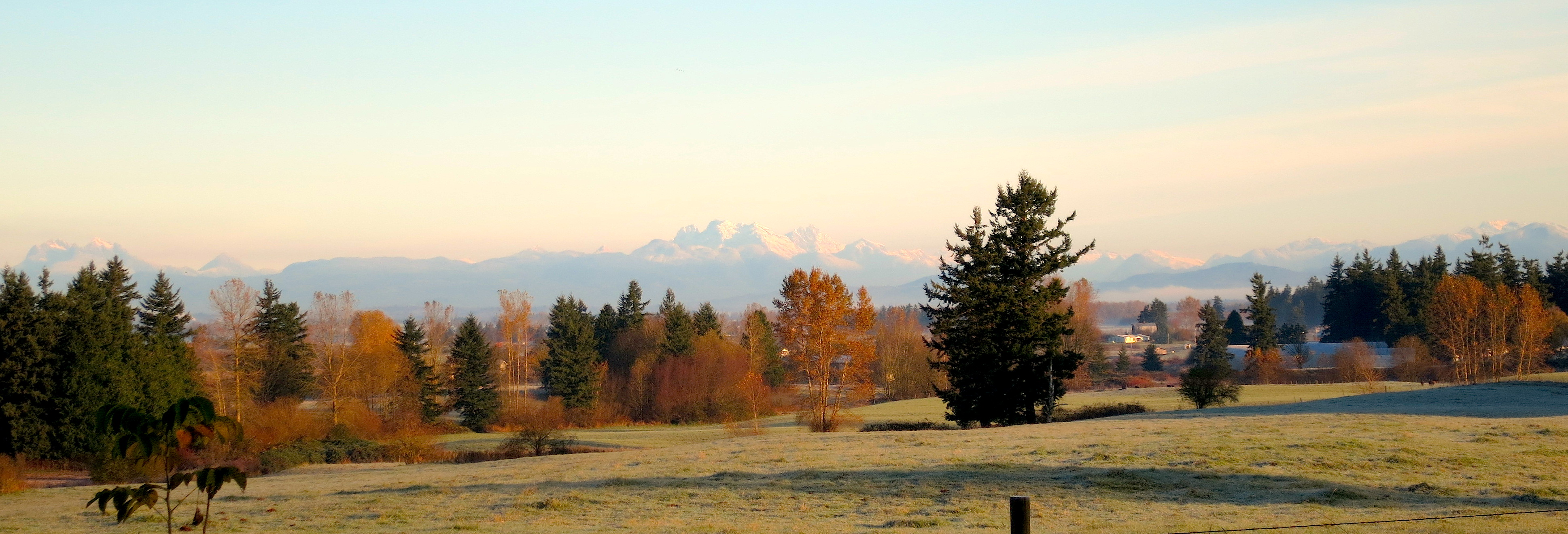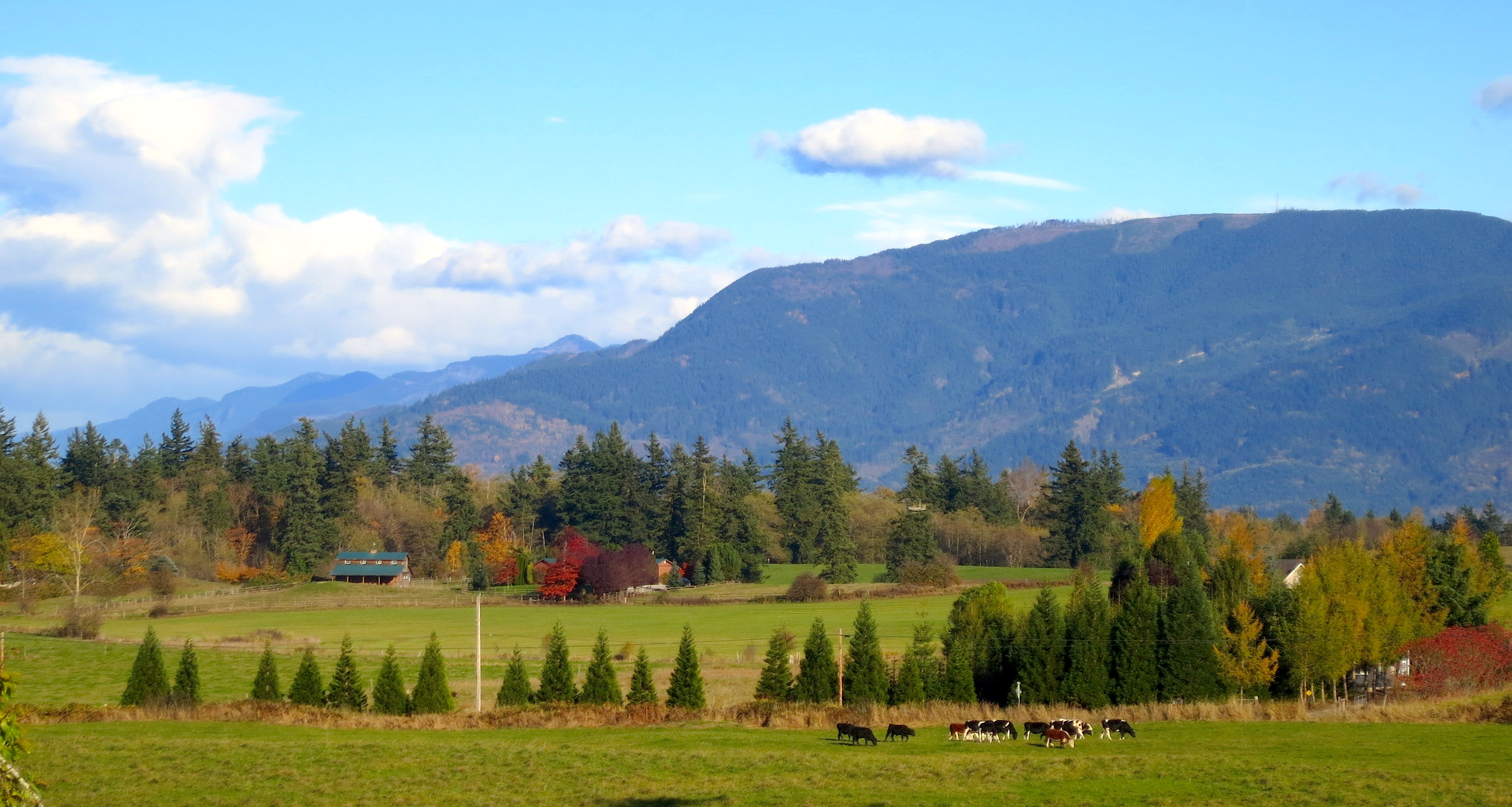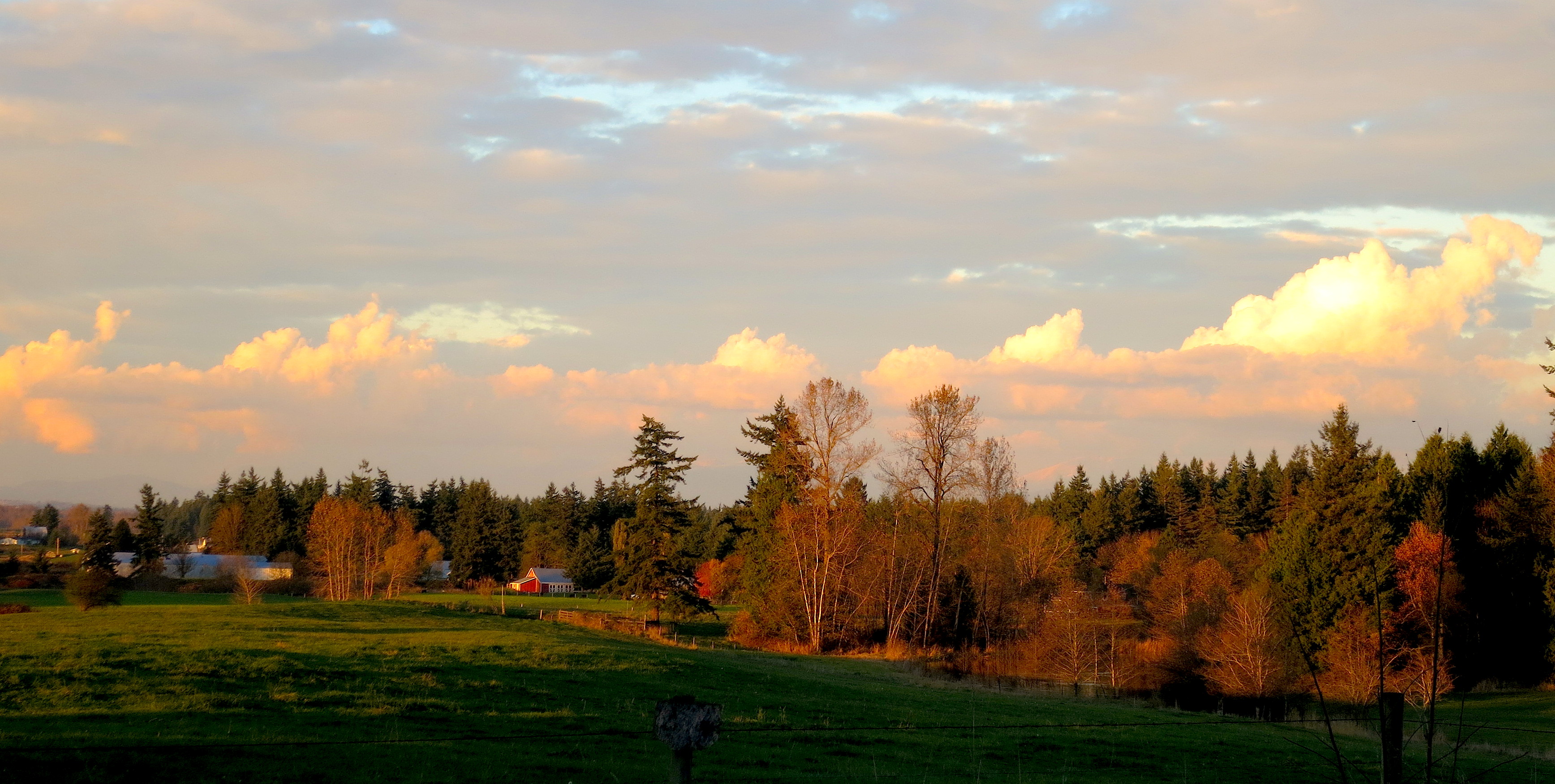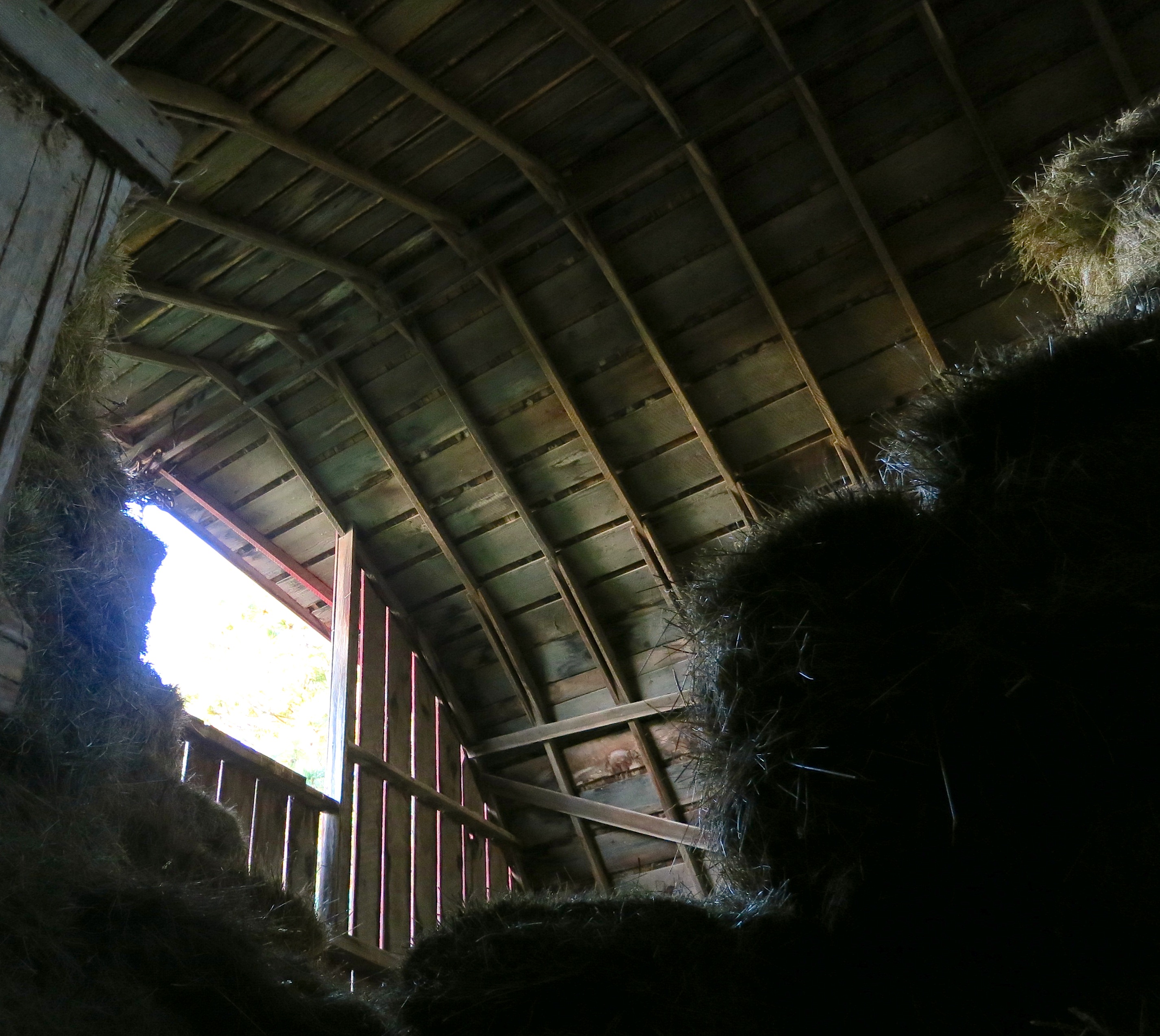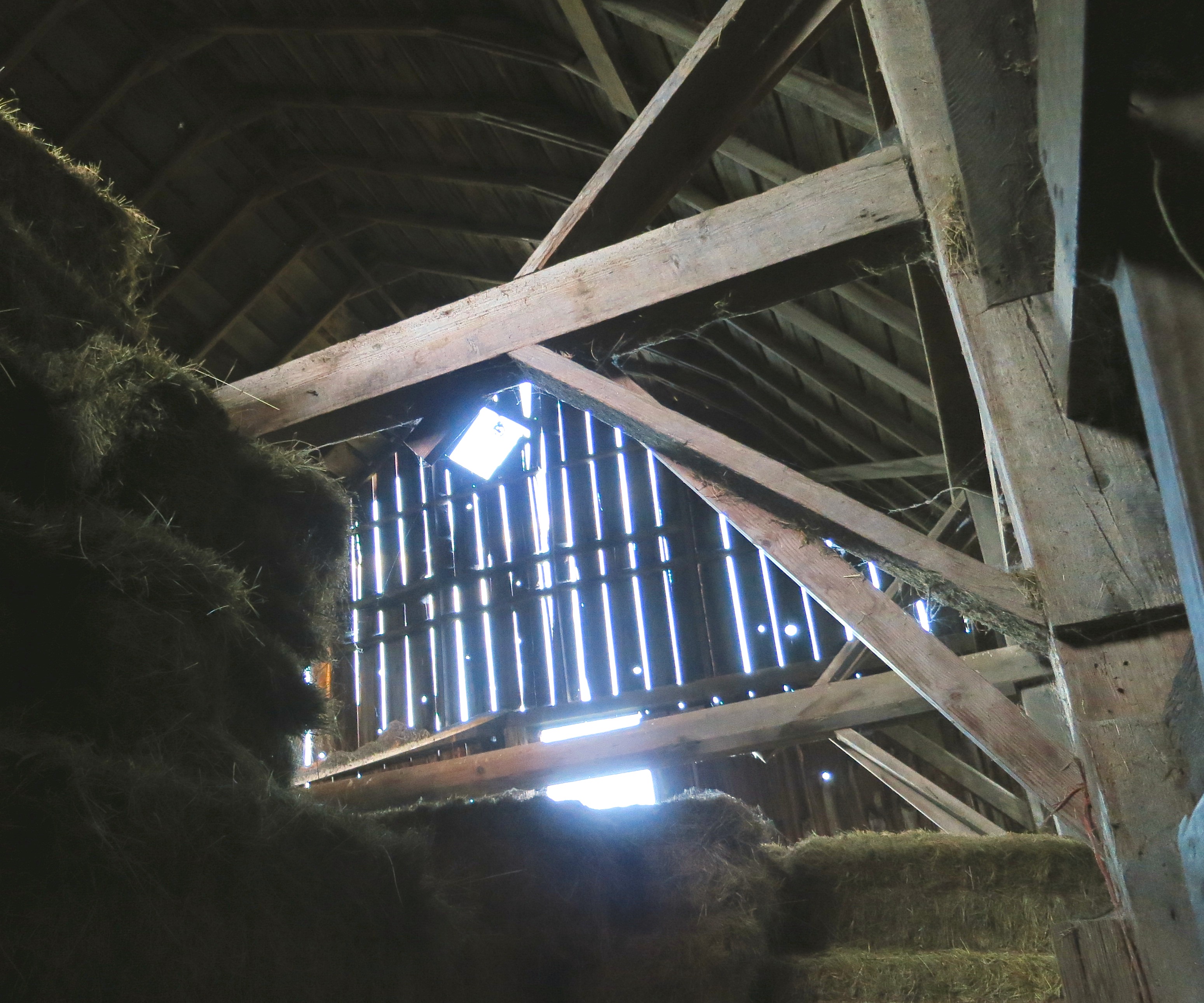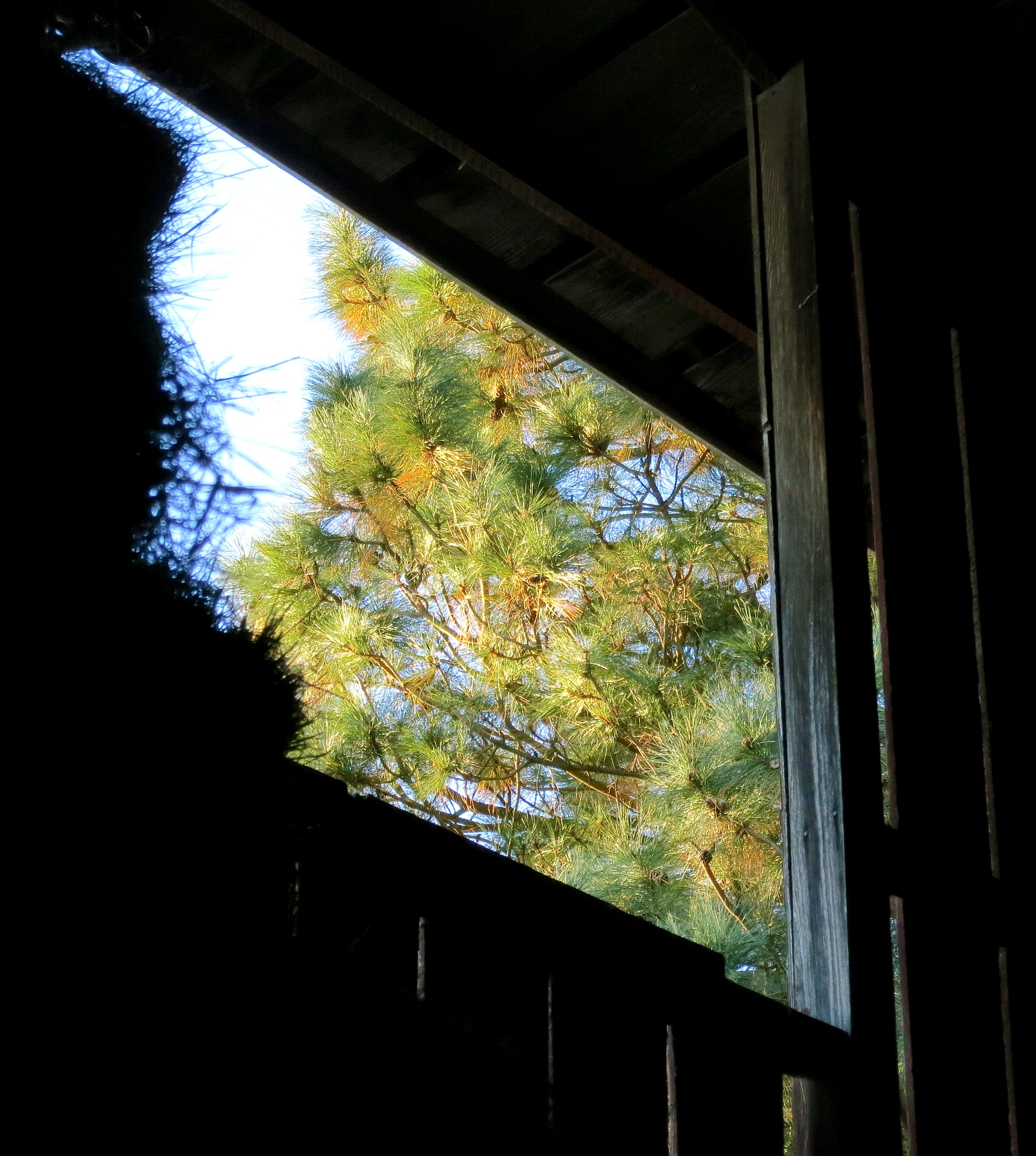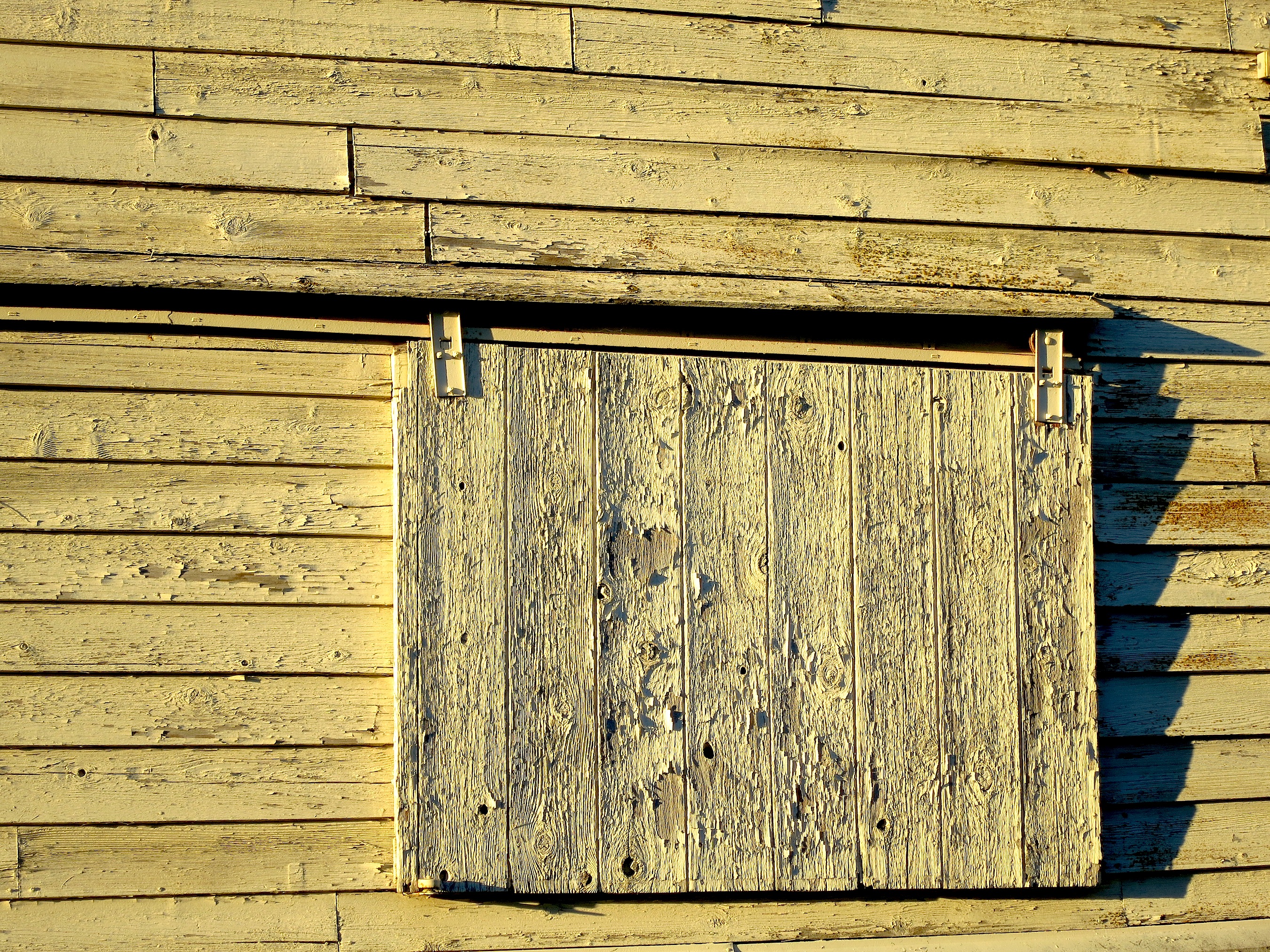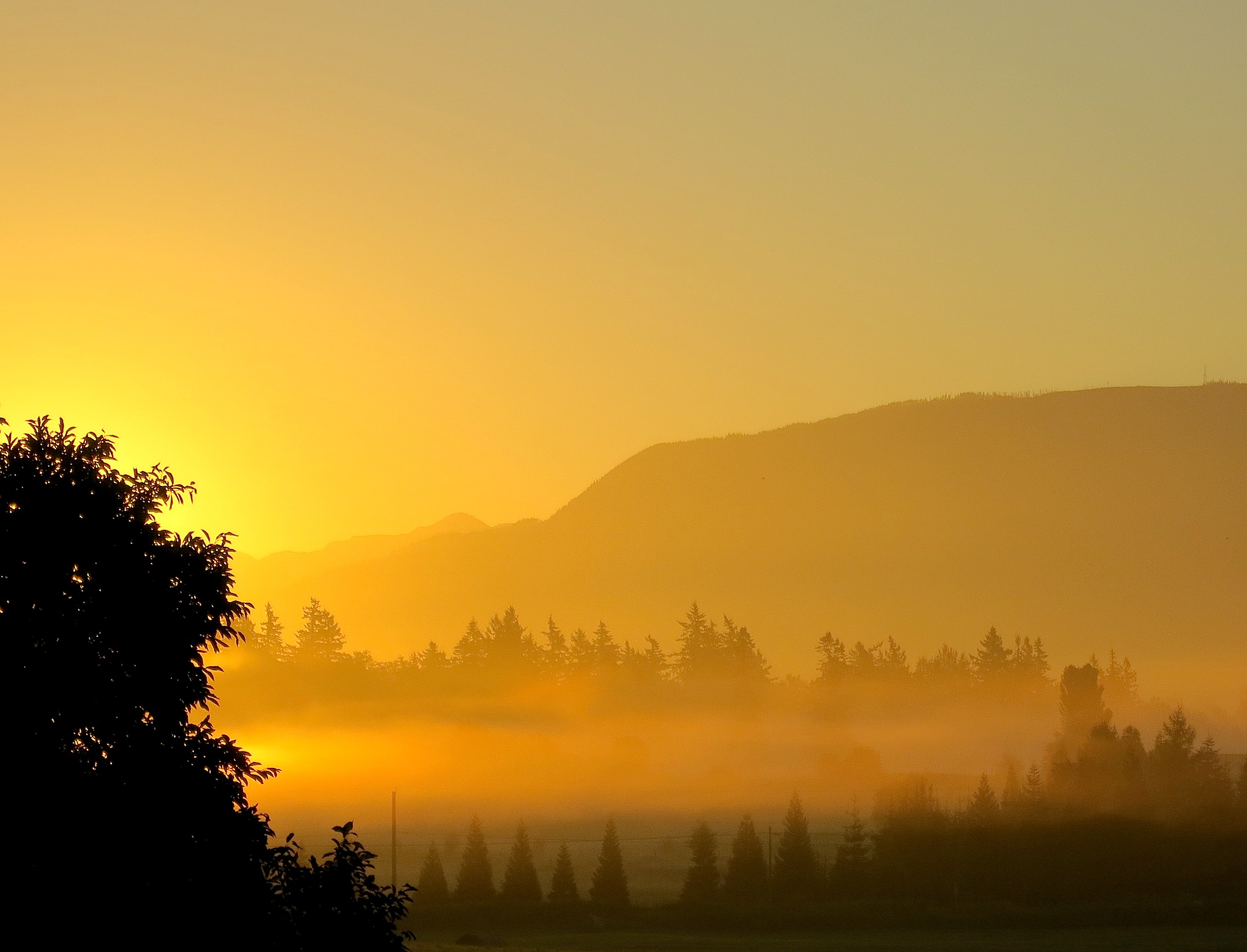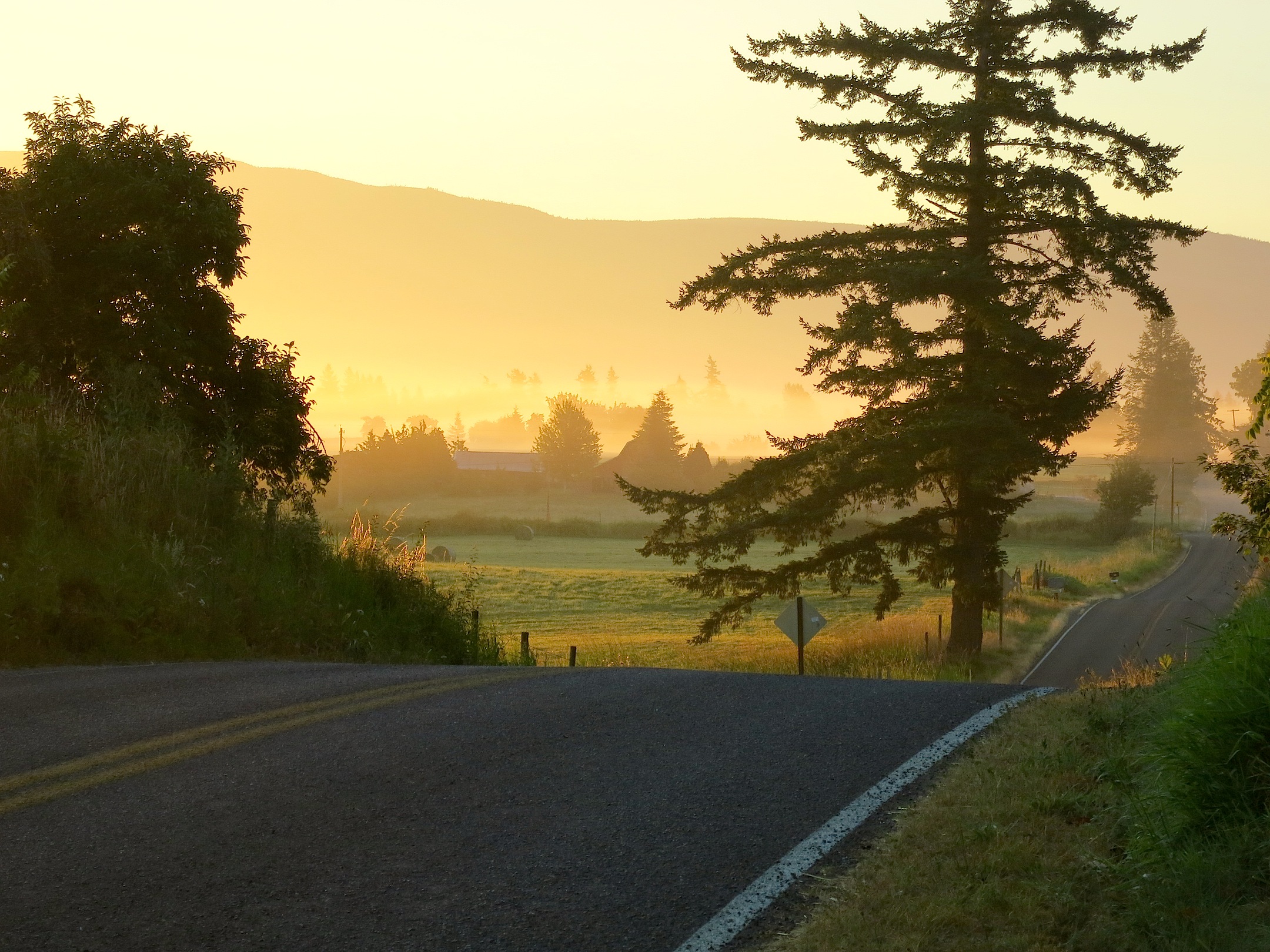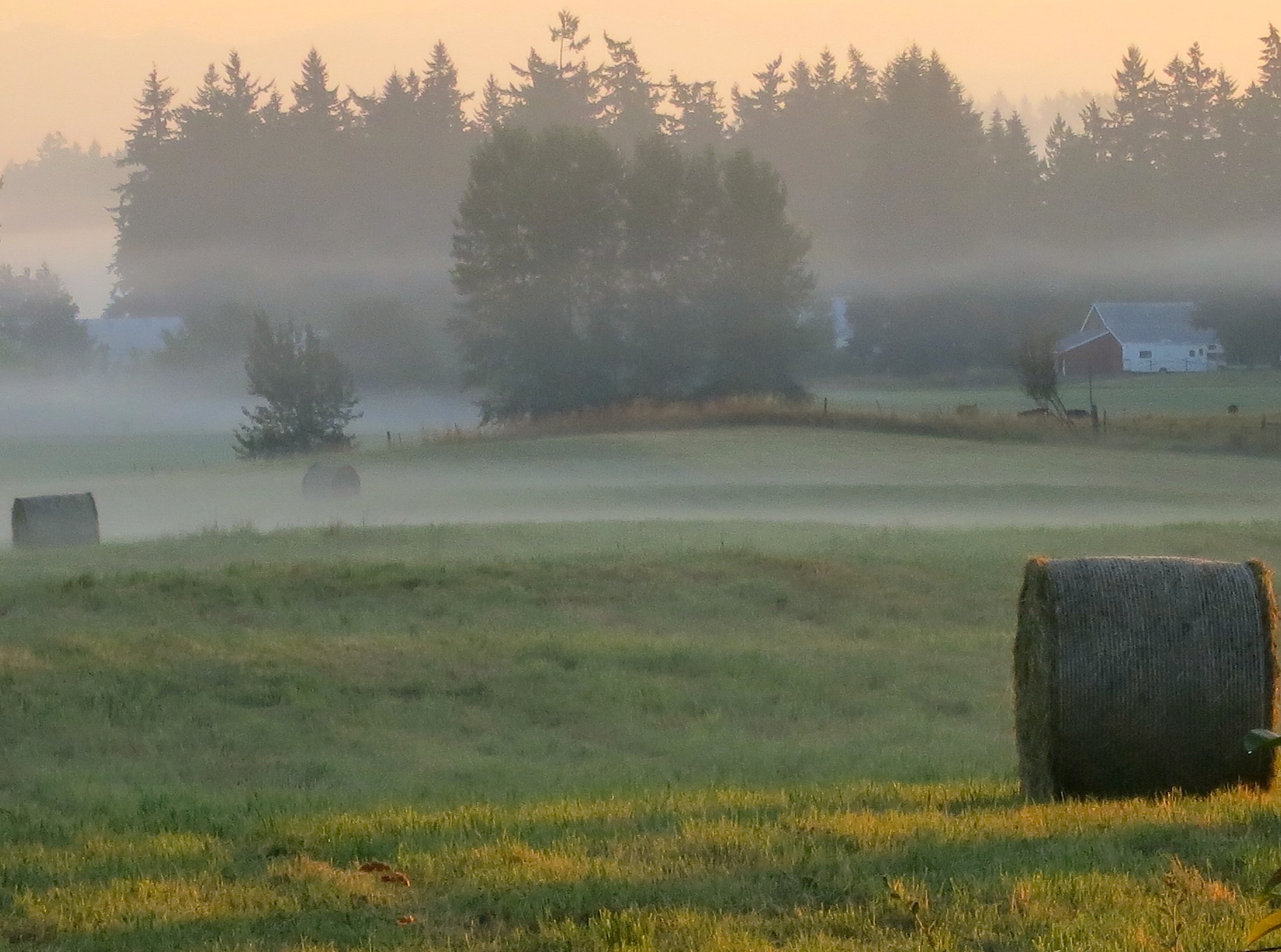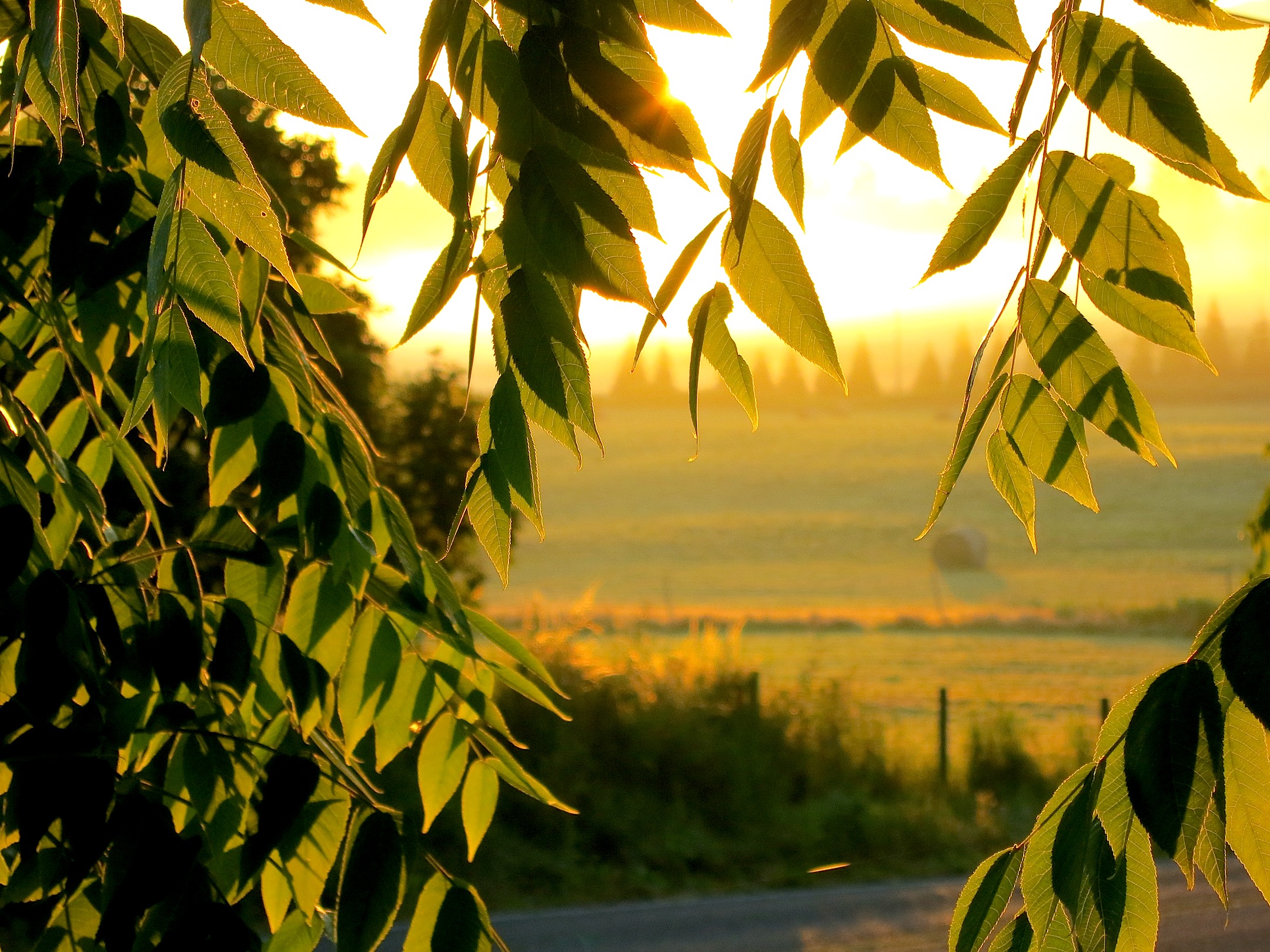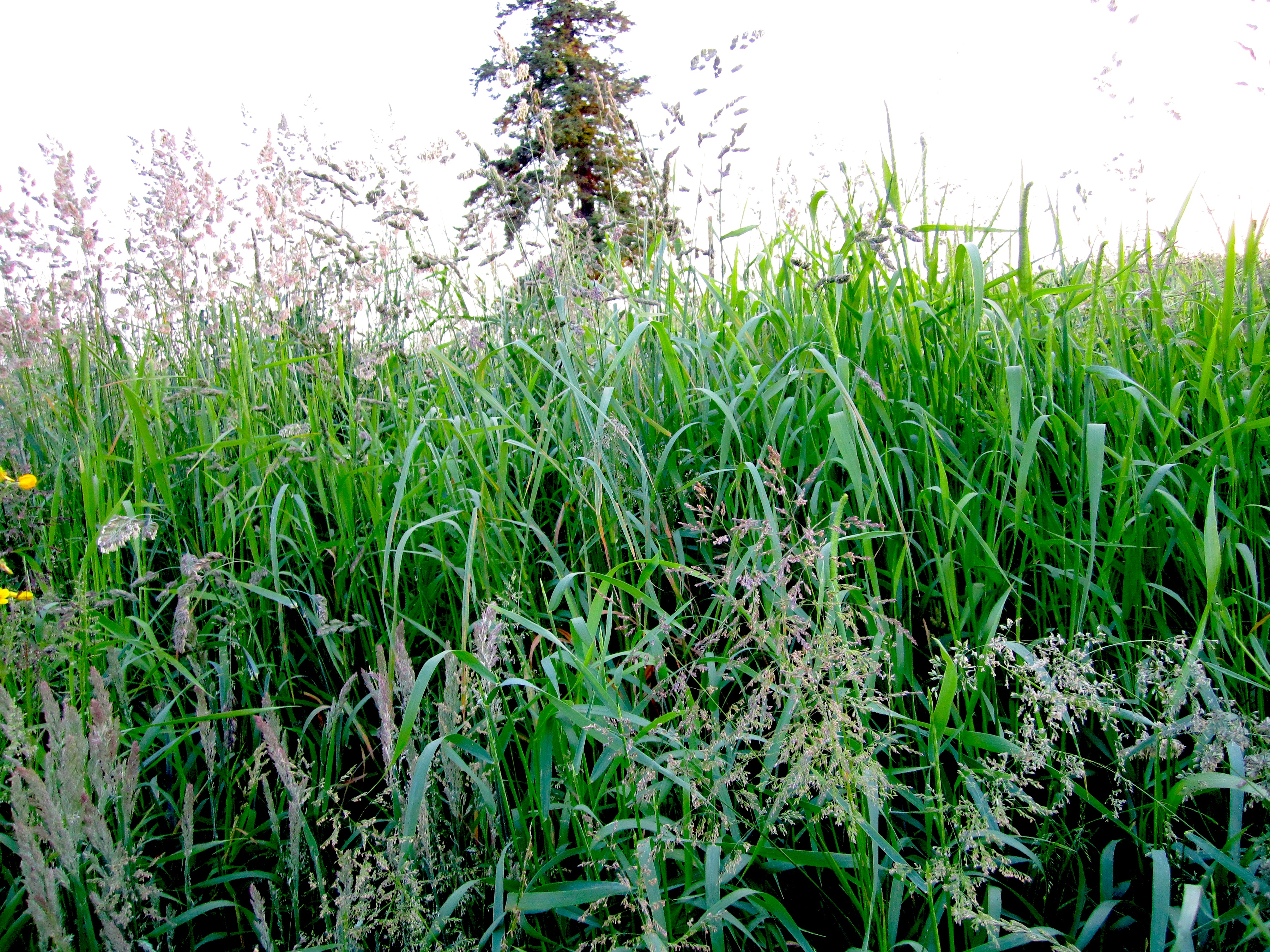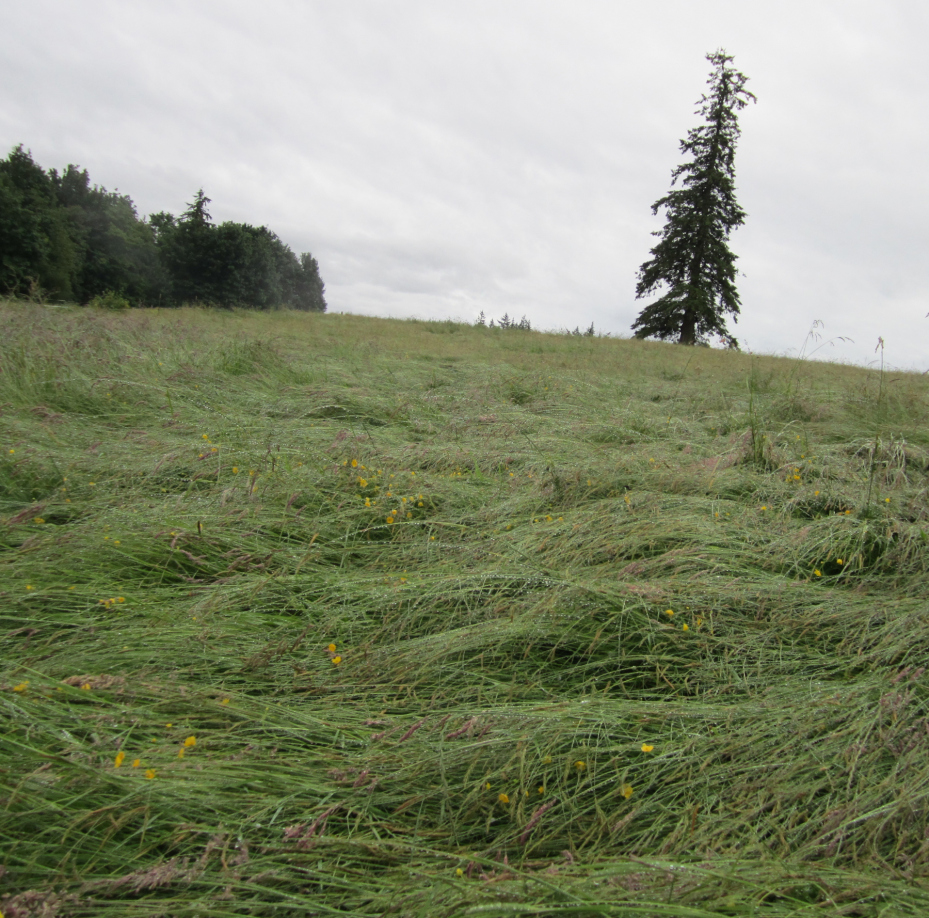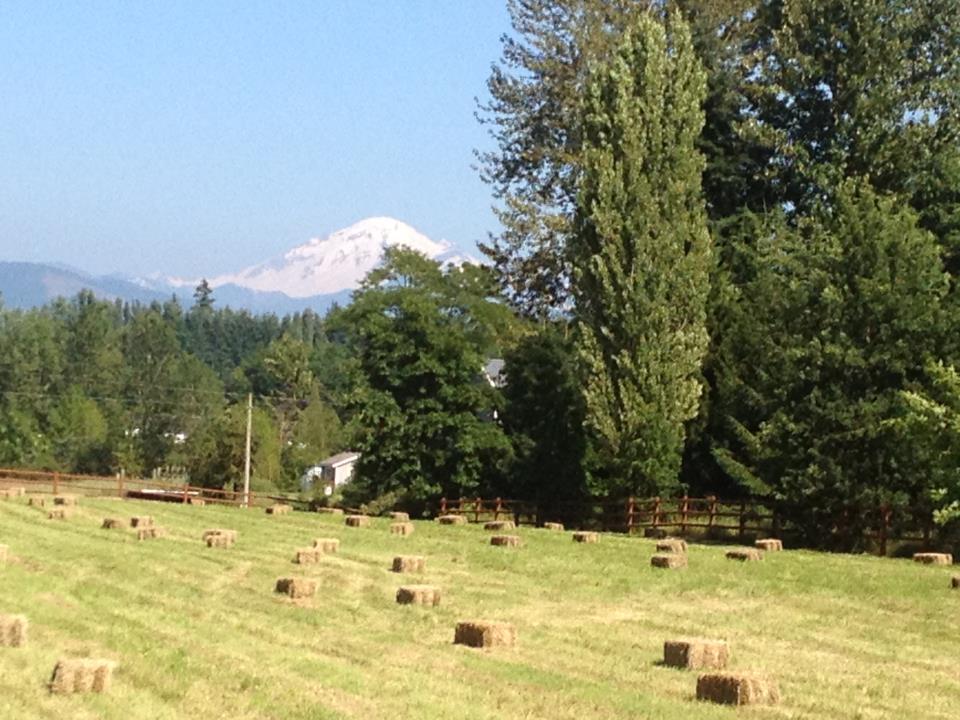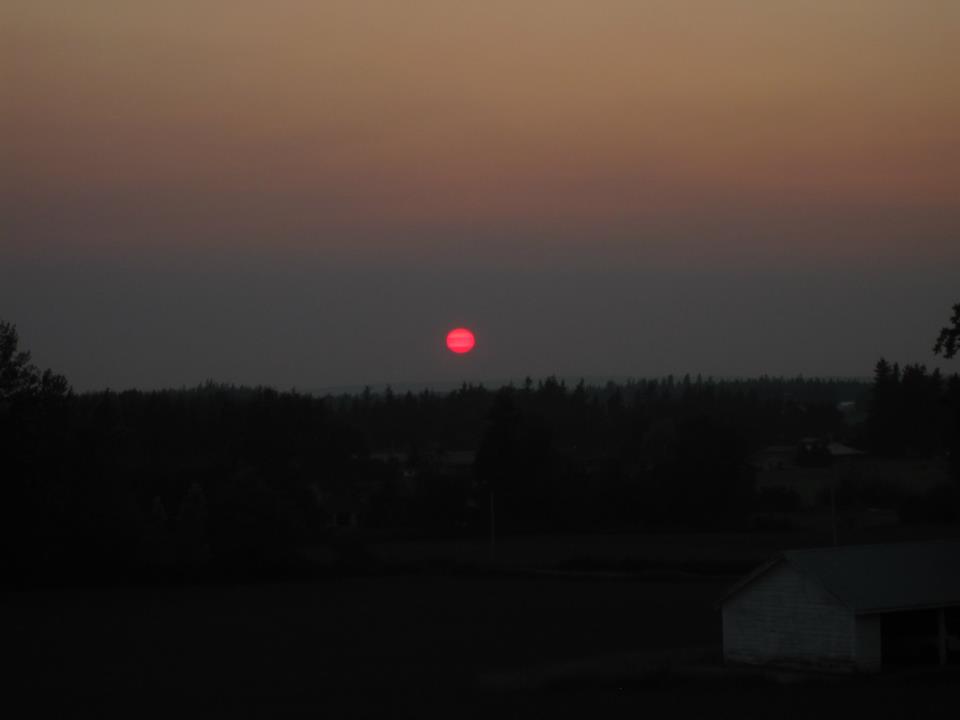

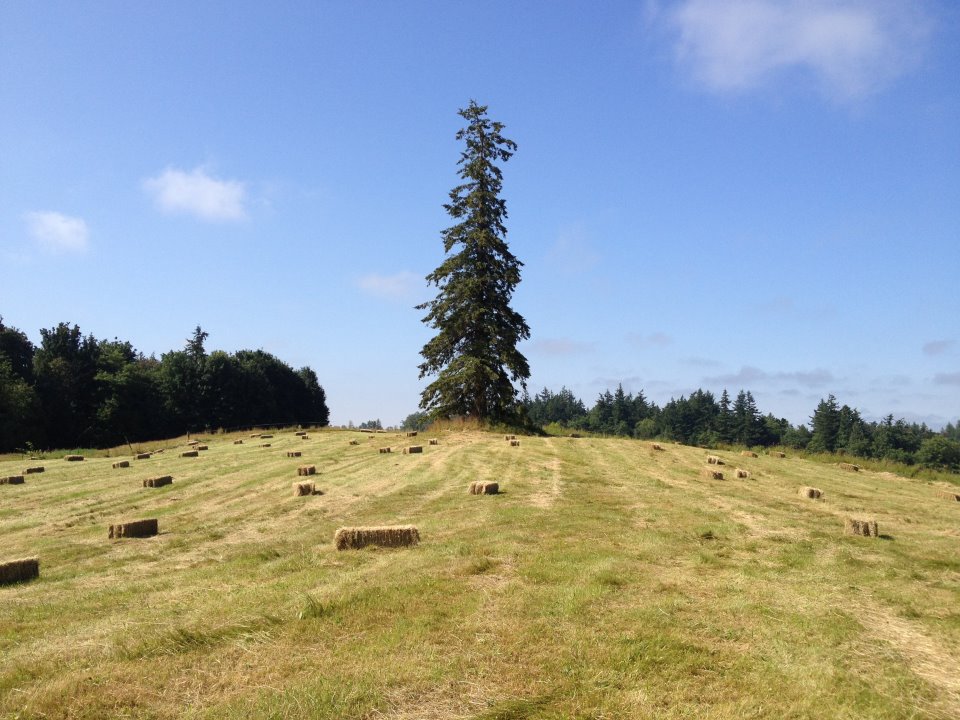
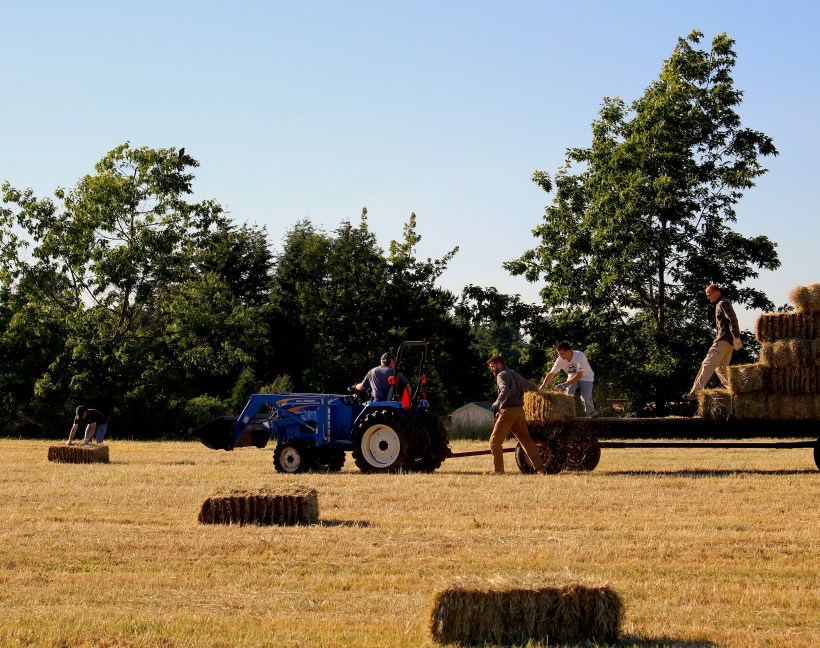


What is the hayfield in late afternoon
that it can fly in the face of time,
and light can be centuries old, and even
the rusted black truck I am driving
can seem to be an implement born
of some ancient harvest,
and the rhythmic baler, which spits out
massive bricks tied up in twine,
can seem part of a time before now
because light glitters on the hay dust,
because the sun is sinking and we sweat
under the high arc of mid-summer,
because our bodies cast such long shadows–
Rebecca, with the baby strapped to her back,
the men who throw impossible weight
to the top of the truck, the black and white
dog that races after mice or moles
whose lives have been suddenly exposed.
How does the taste of my sweat take me
down through the gate of childhood,
spinning backwards to land in a field
painted by Bruigel, where the taste of salt
is the same, and the same heat
rises in waves off a newly flattened field.
In the duskiness of slanted light, we laugh
just as we laughed then, because there is
joy in what the earth gives, allowing
our bodies to mingle with it, our voices
small on the field, our work assuring the goats
can give milk, the sheep can grow wool,
and we will have in our bones the taste
of something so old it travels in light.
~Susie Patlove “First Cutting” from Quickening
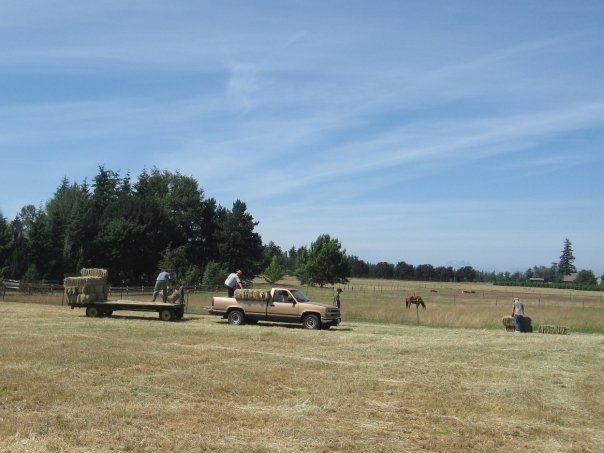
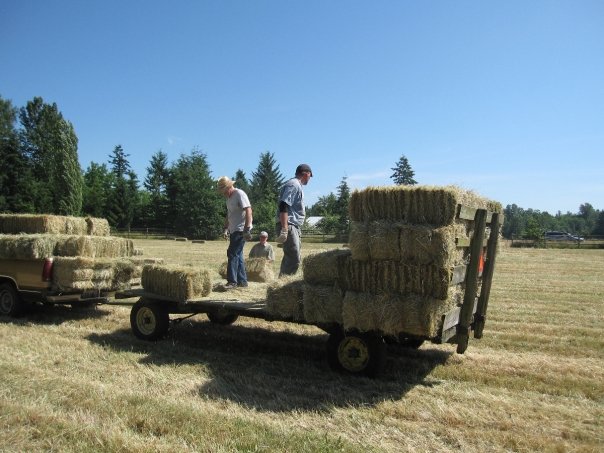
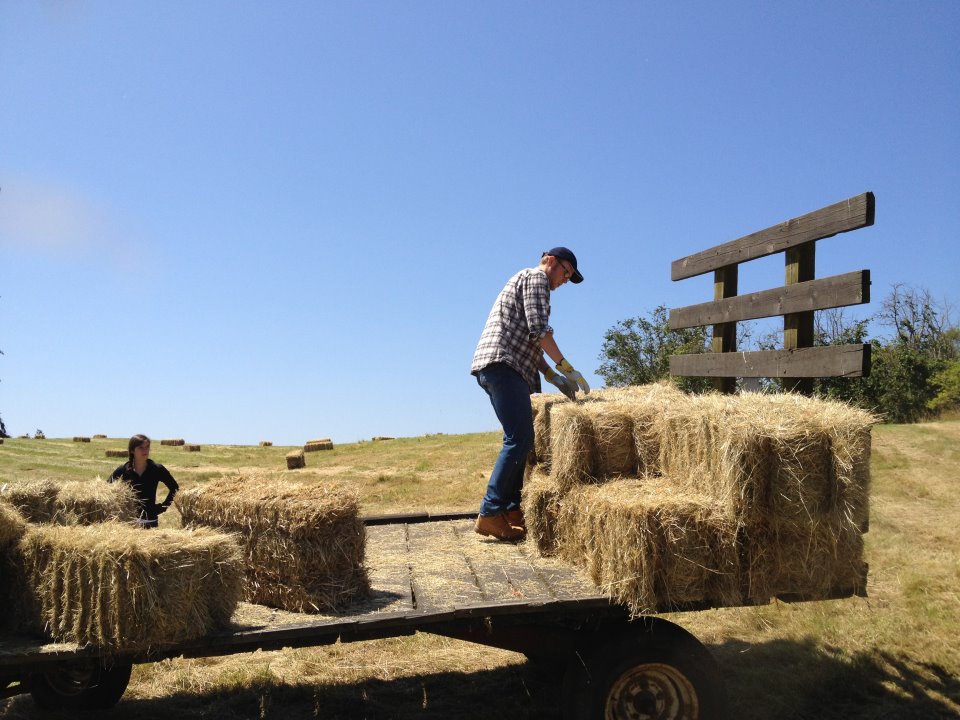

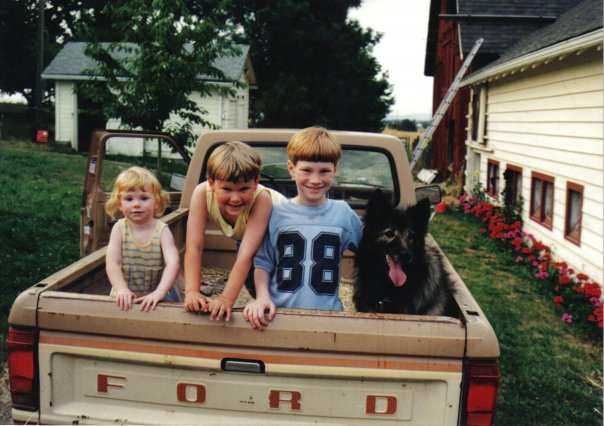
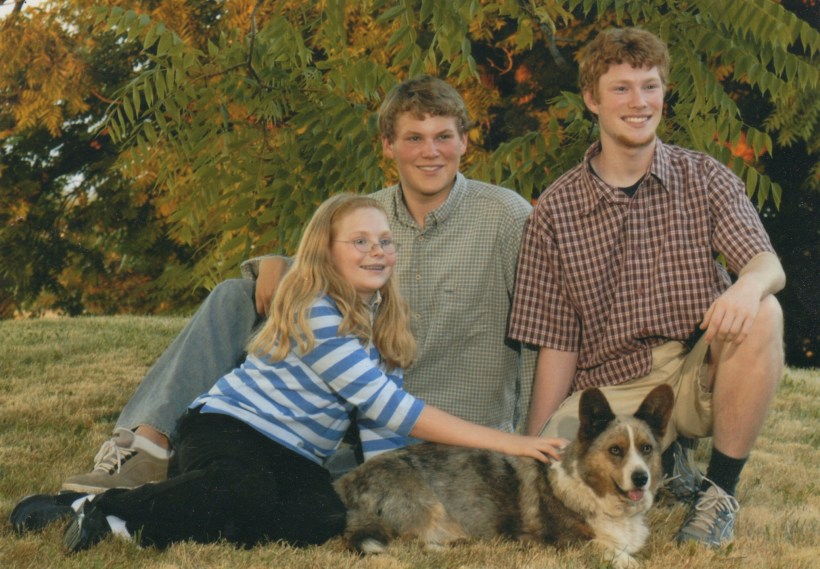
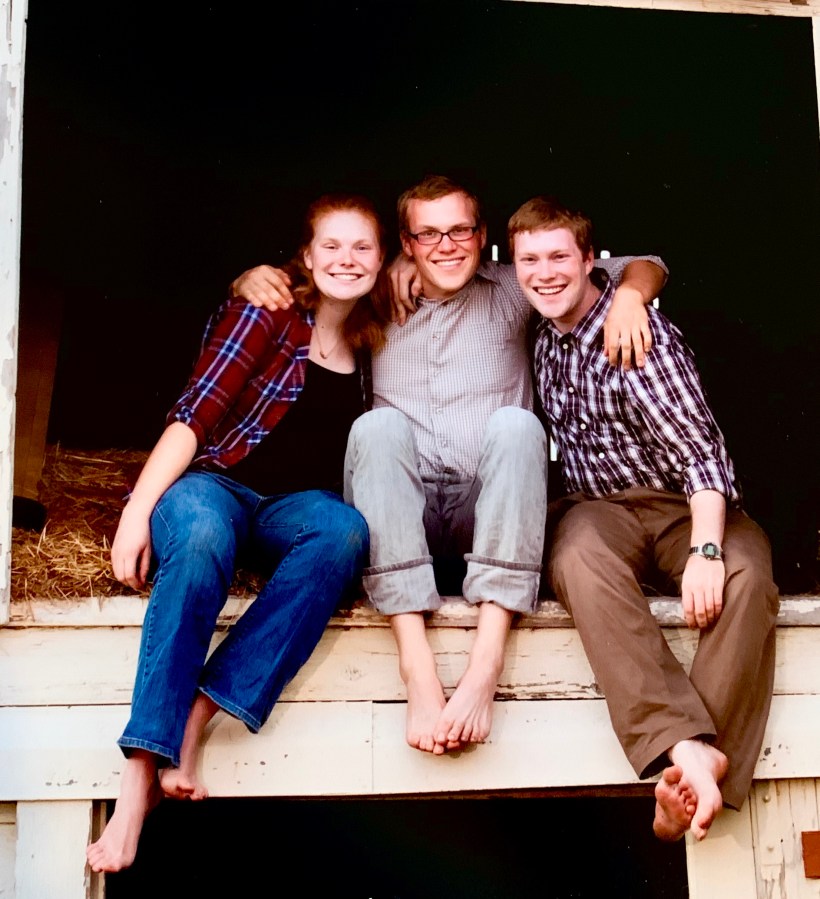

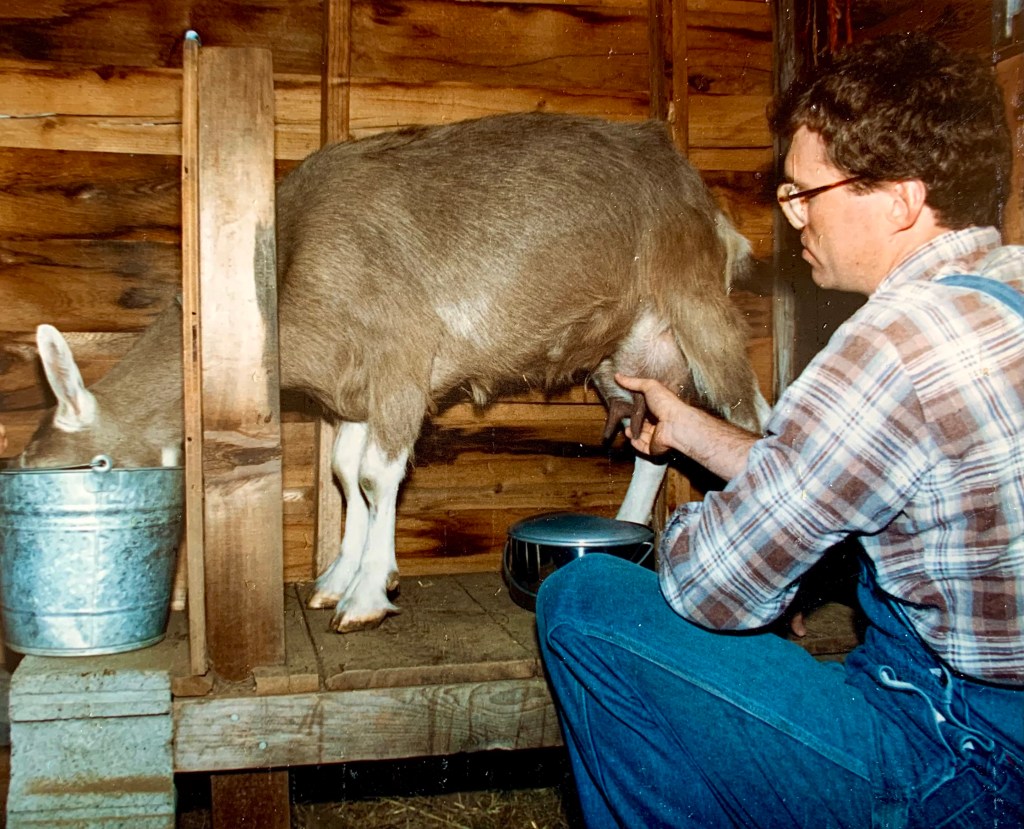

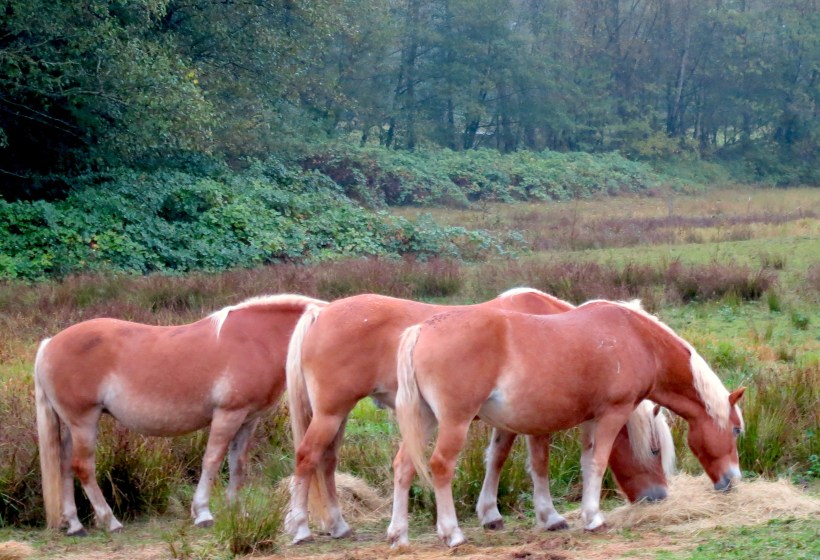
There is a timelessness to mid-summer hay harvest that goes back generations on both sides of our family. The cutting, raking and gathering of hay has evolved from horse-drawn implements and gathering loose shocks of hay to 100+ horse power air-conditioned tractors and huge round bales wrapped and stored in plastic sheathing rather than in barns.
Our farm is happily stuck somewhere in-between: we still prefer filling the haybarn with bales that I can still lift and move myself to feed our animals. True hay harvest involves sweat and dust and a neighborhood coming together to preserve summer in tangible form.
I grew up on a farm with a hayfield – I still have the scar over my eyebrow where I collided with the handle of my father’s scythe when, as a toddler, I came too close behind him as he was taking a swing at cutting a field of grass one swath at a time. I remember the huge claws of the hay hook reaching down onto loose hay piled up on our wagon. The hook would gather up a huge load, lift it high in the air to be moved by pulley on a track into our spacious hay loft. It was the perfect place to play and jump freely into the fragrant memories of a summer day, even in the dark of winter.
But these days it is the slanted light of summer I remember most:
-the weightlessness of dust motes swirling down sun rays coming through the slats of the barn walls as the hay bales are stacked
-the long shadows and distant alpenglow in the mountains
-the dusk that goes on and on as owls and bats come out to hunt above us
Most of all, I will remember the sweaty days of mid-summer as I open the bales of hay in mid-winter – the light and fragrance of those grassy fields spilling forth into the chill and darkness, in communion of blessing for our animals.

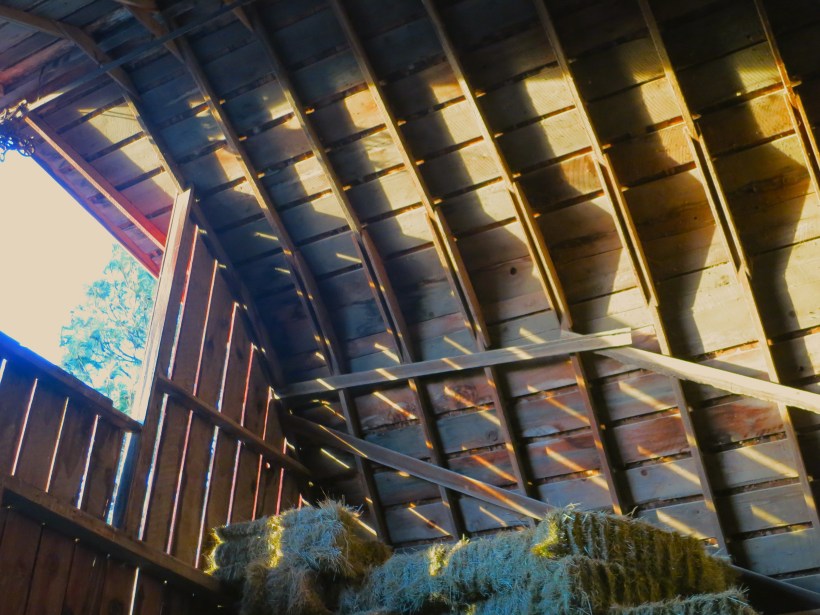

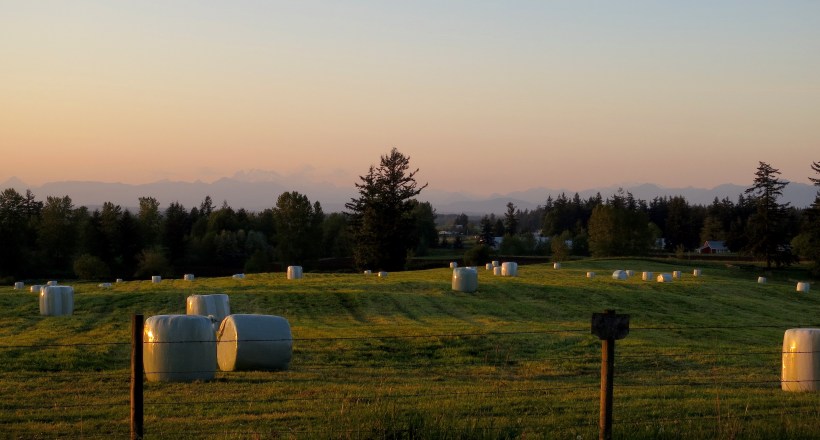


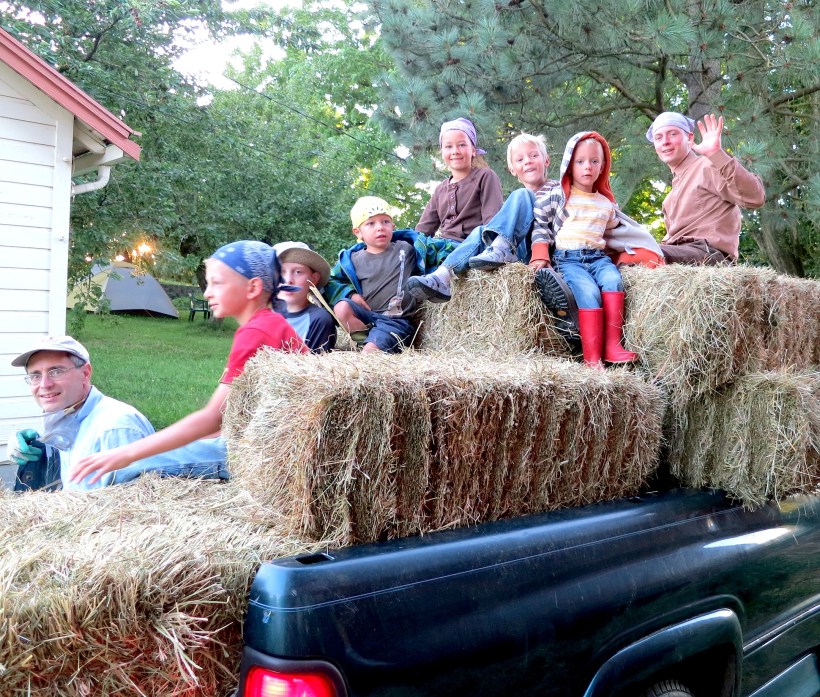


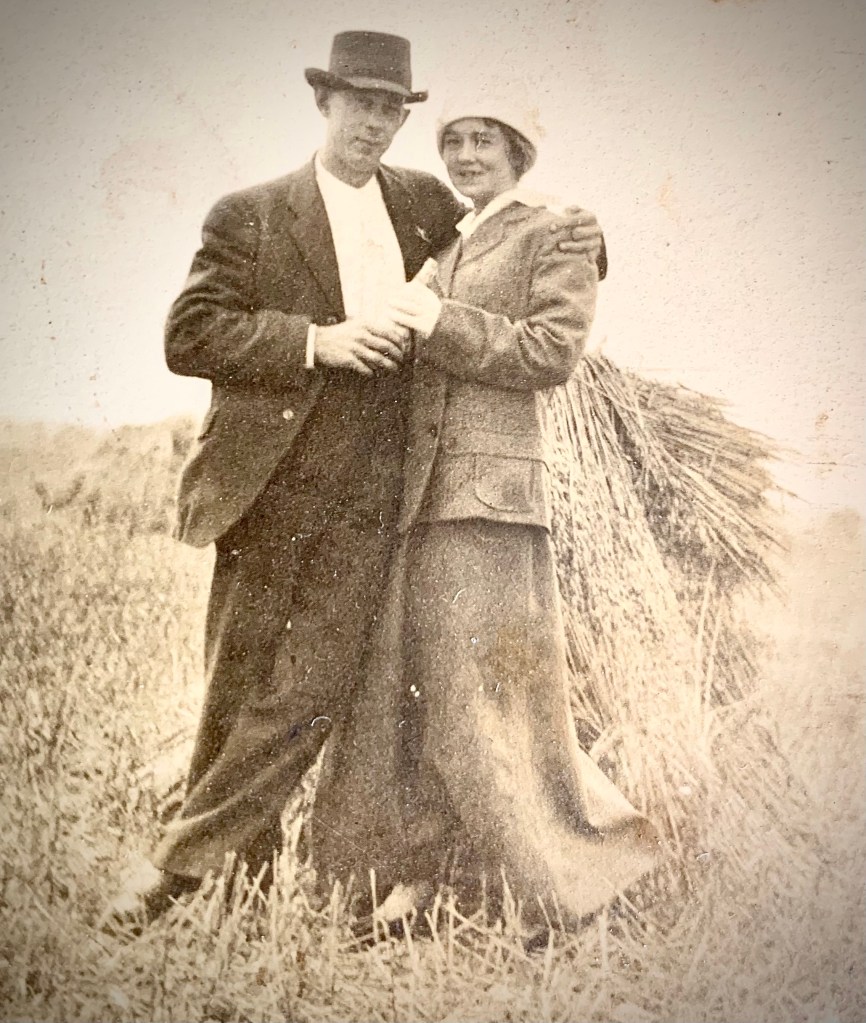
Enjoy this blog post? A new book from Barnstorming is available to order here:
